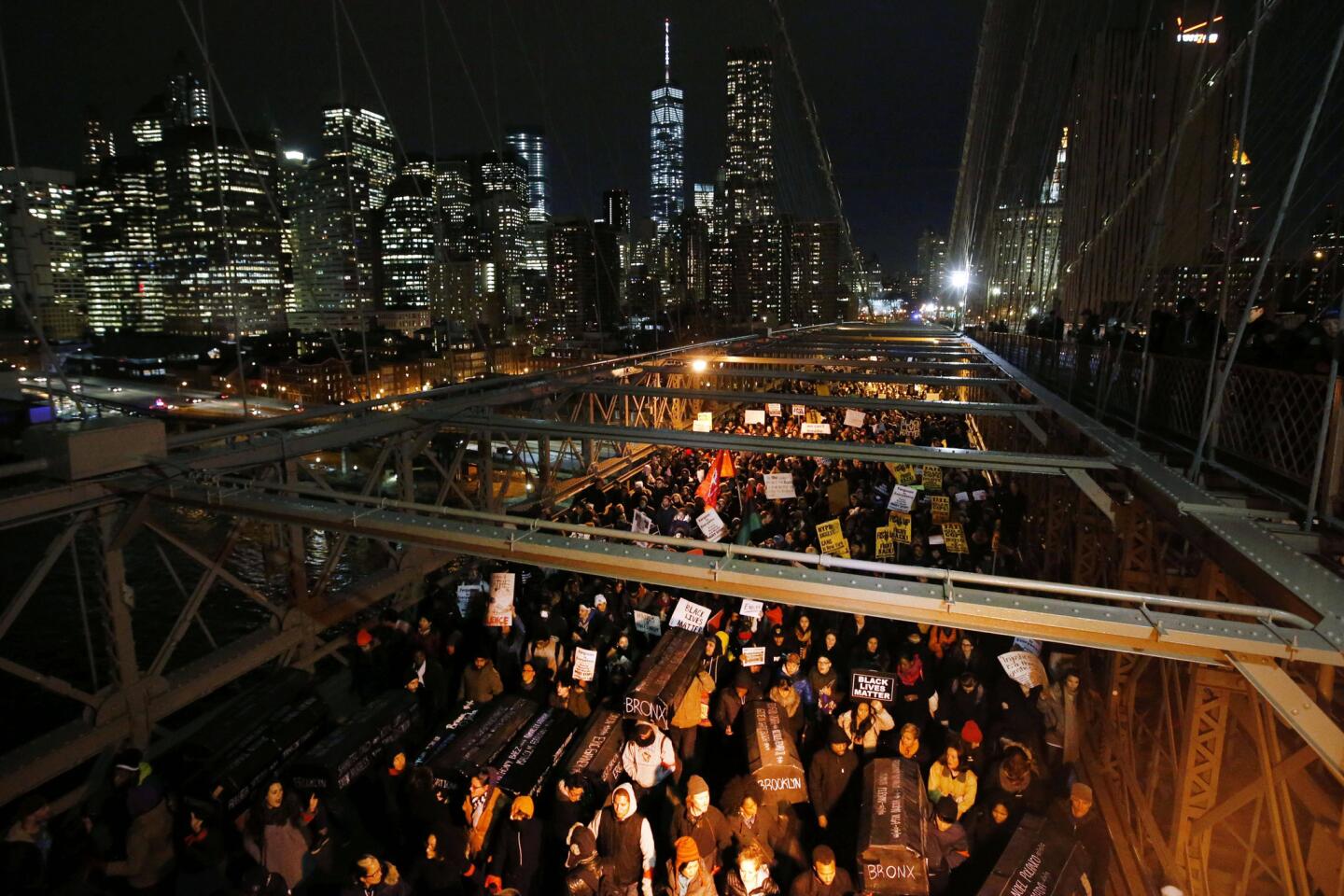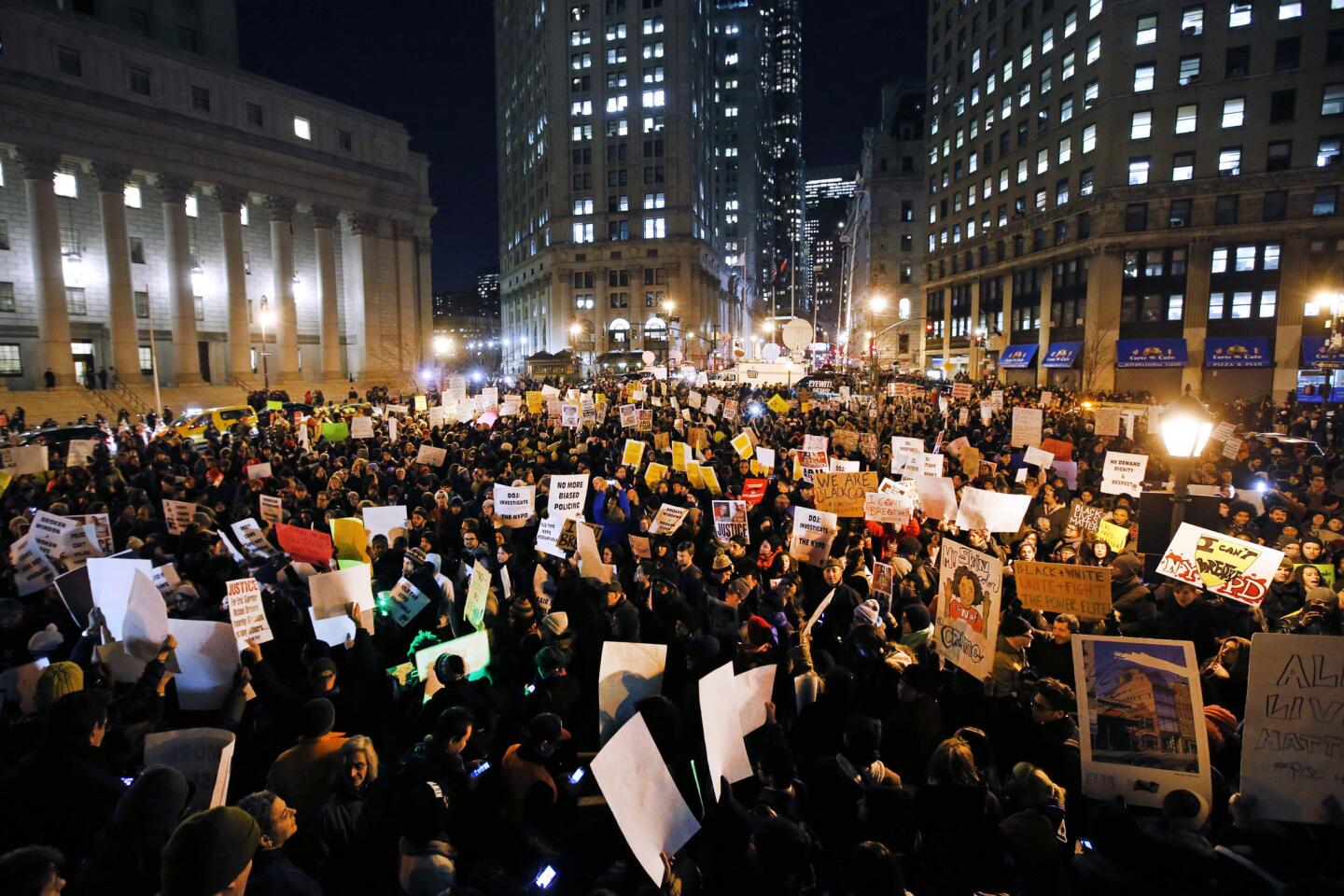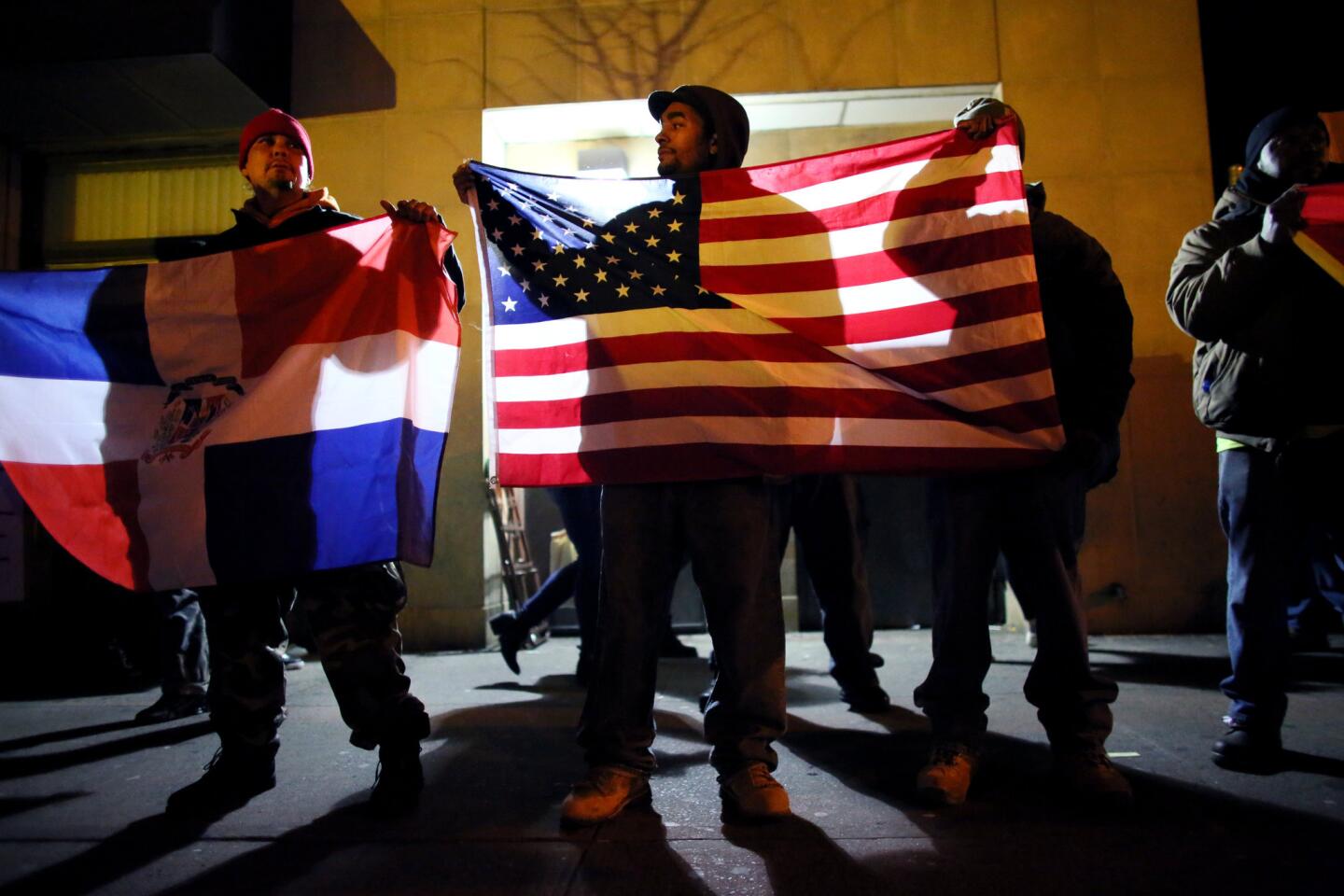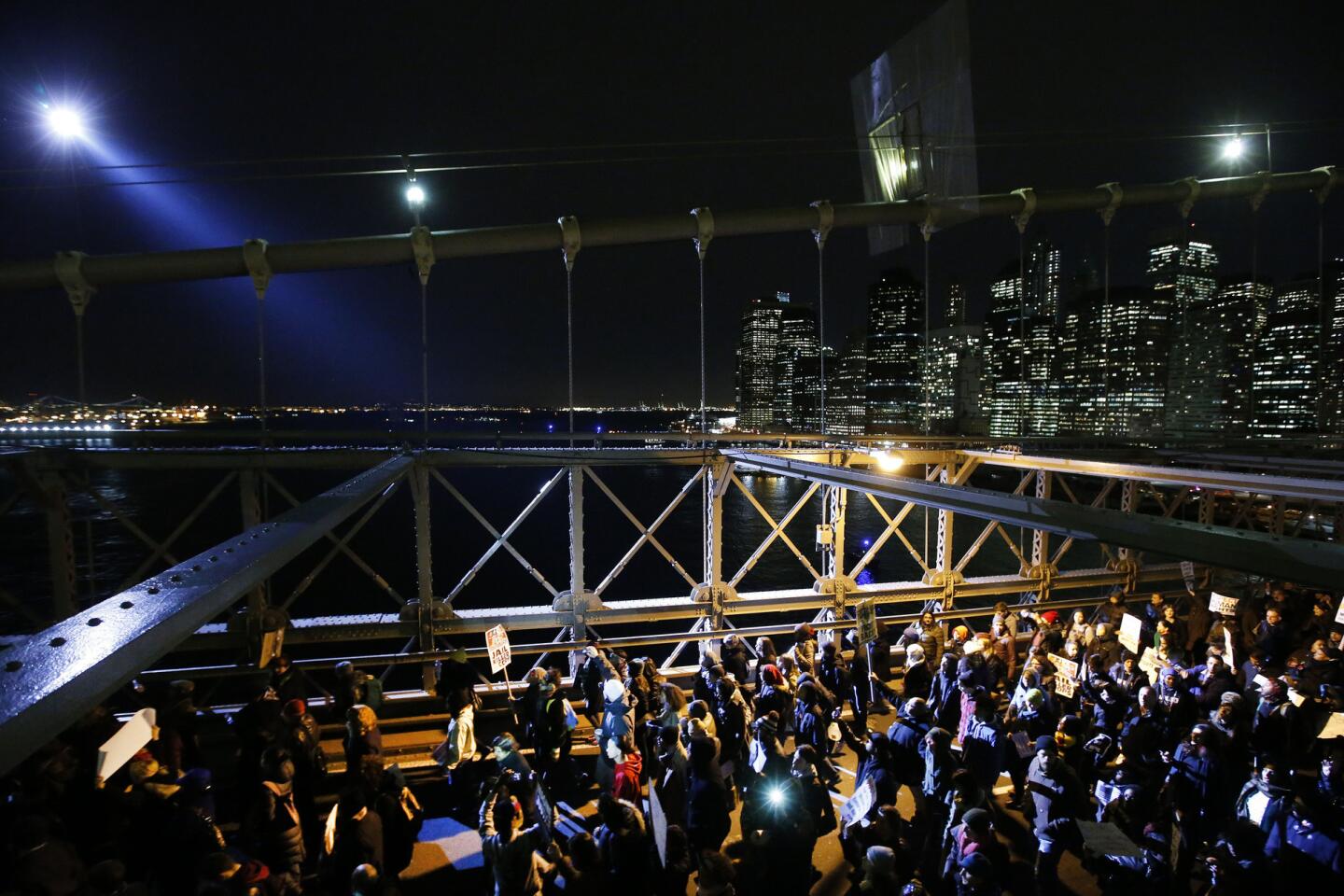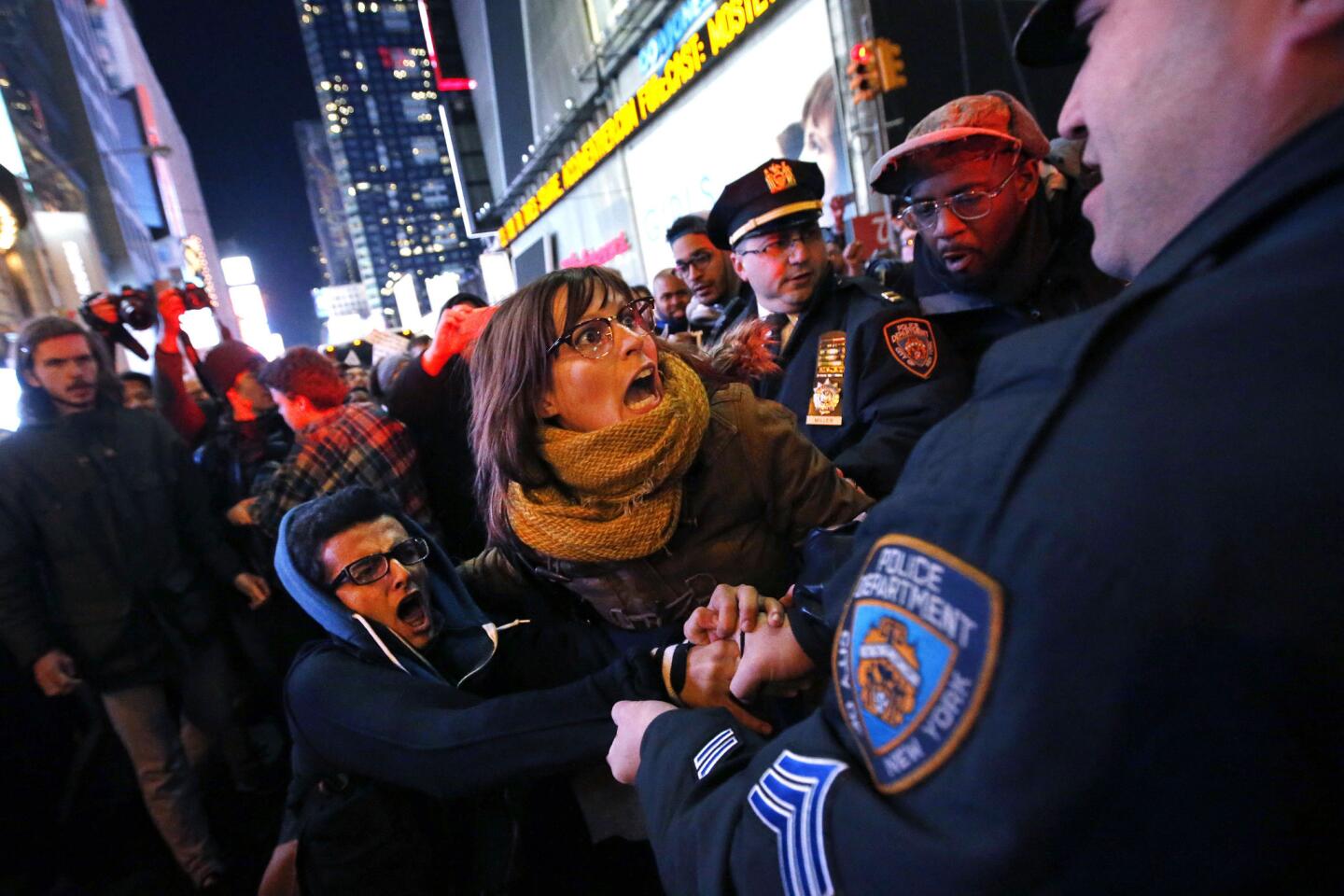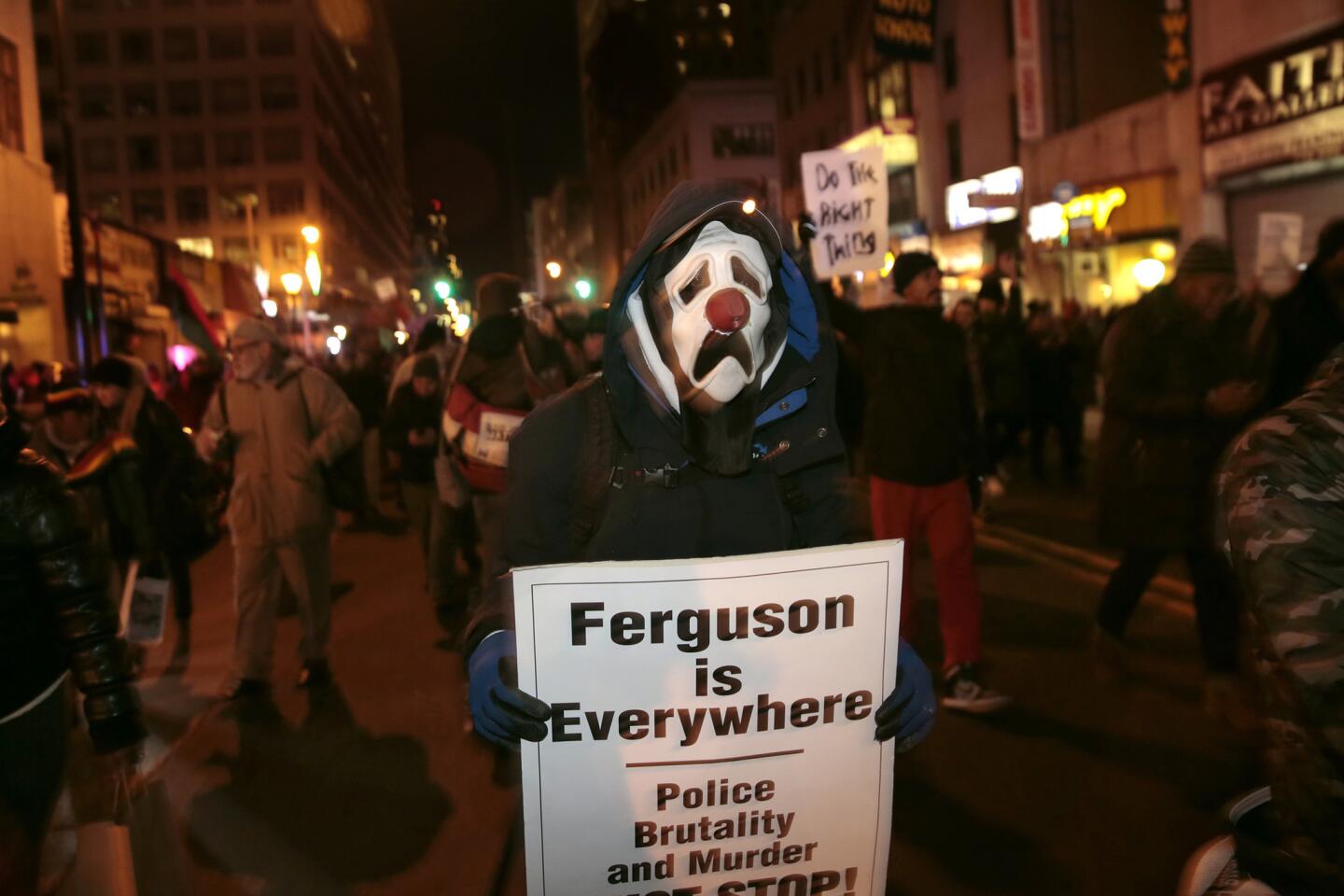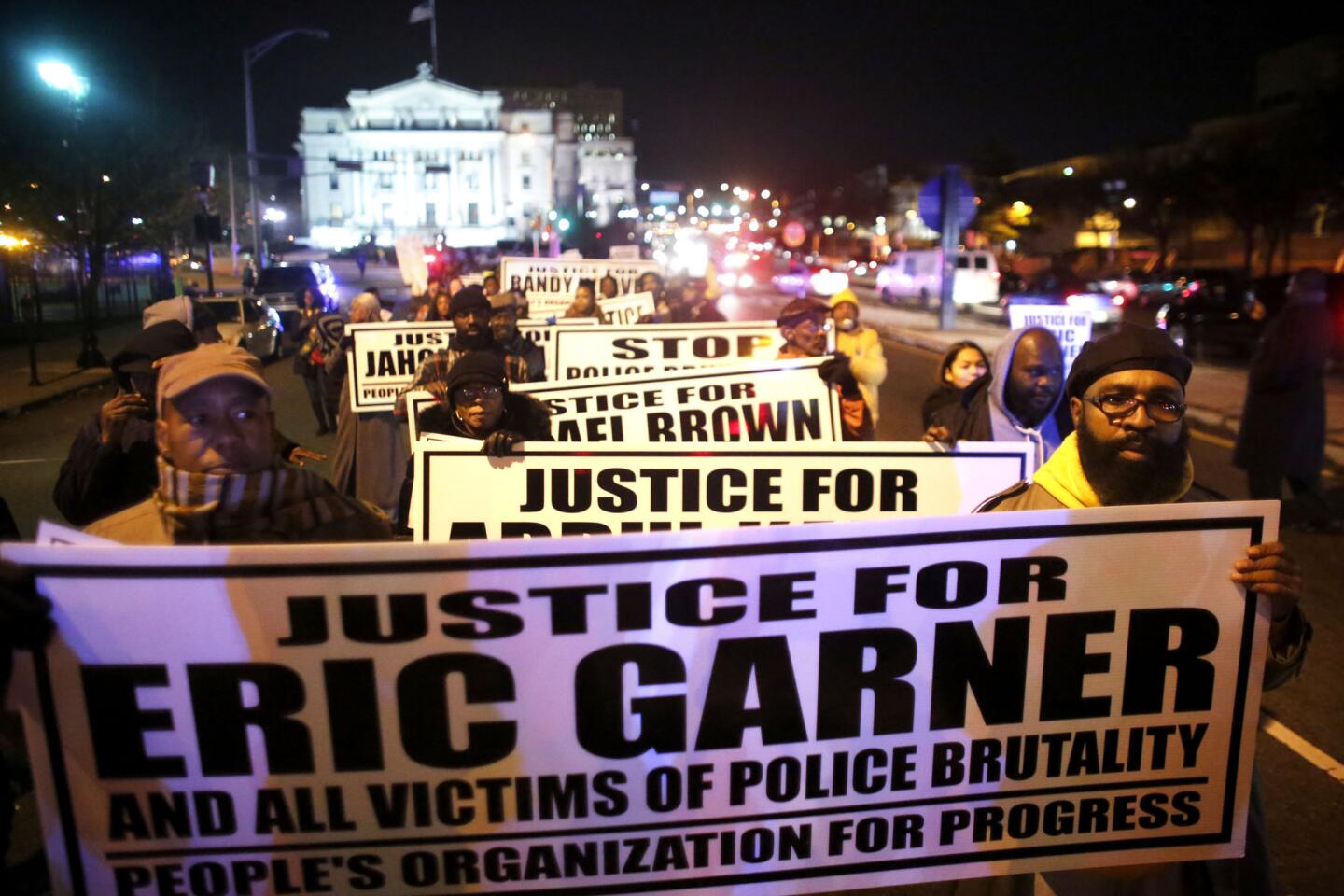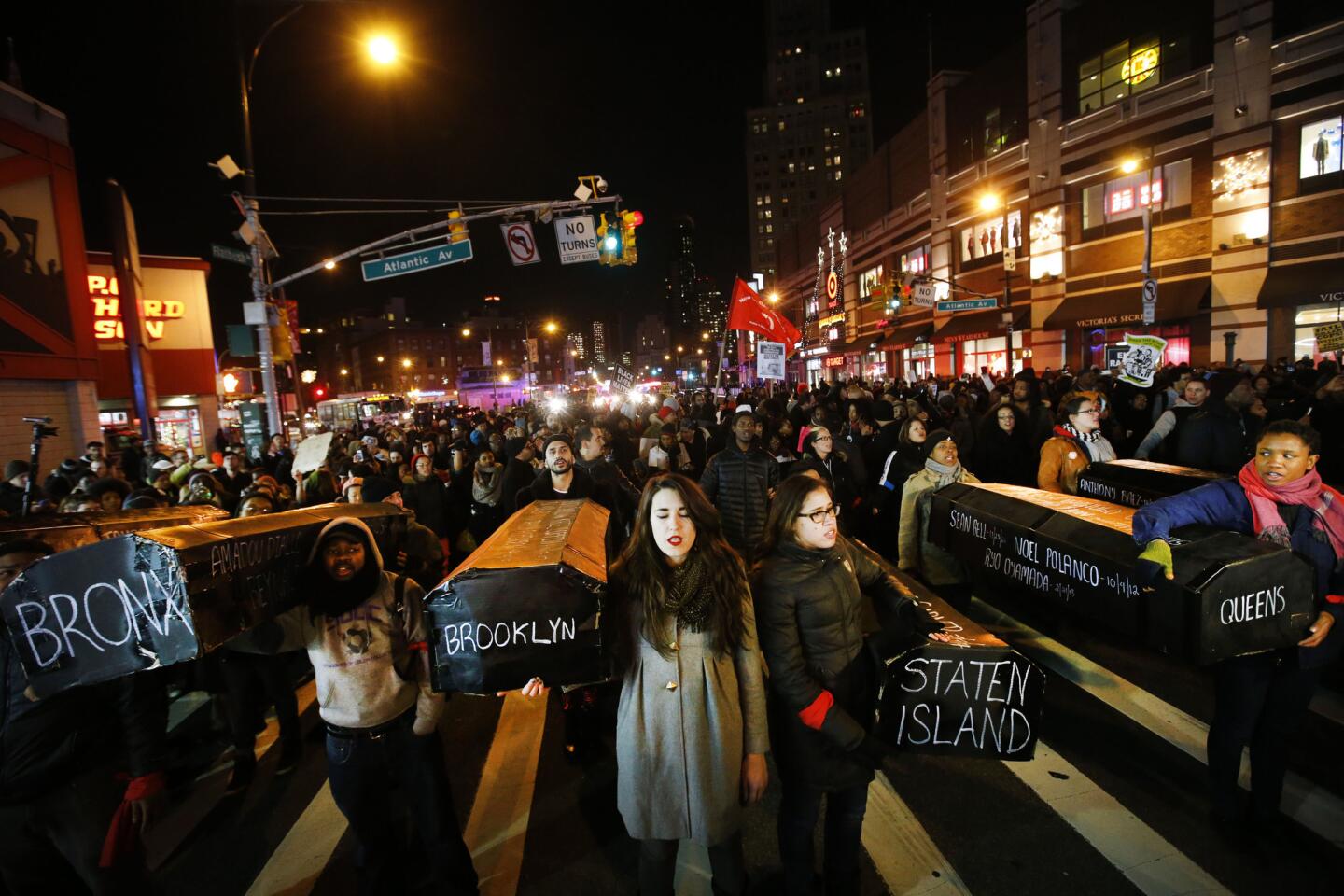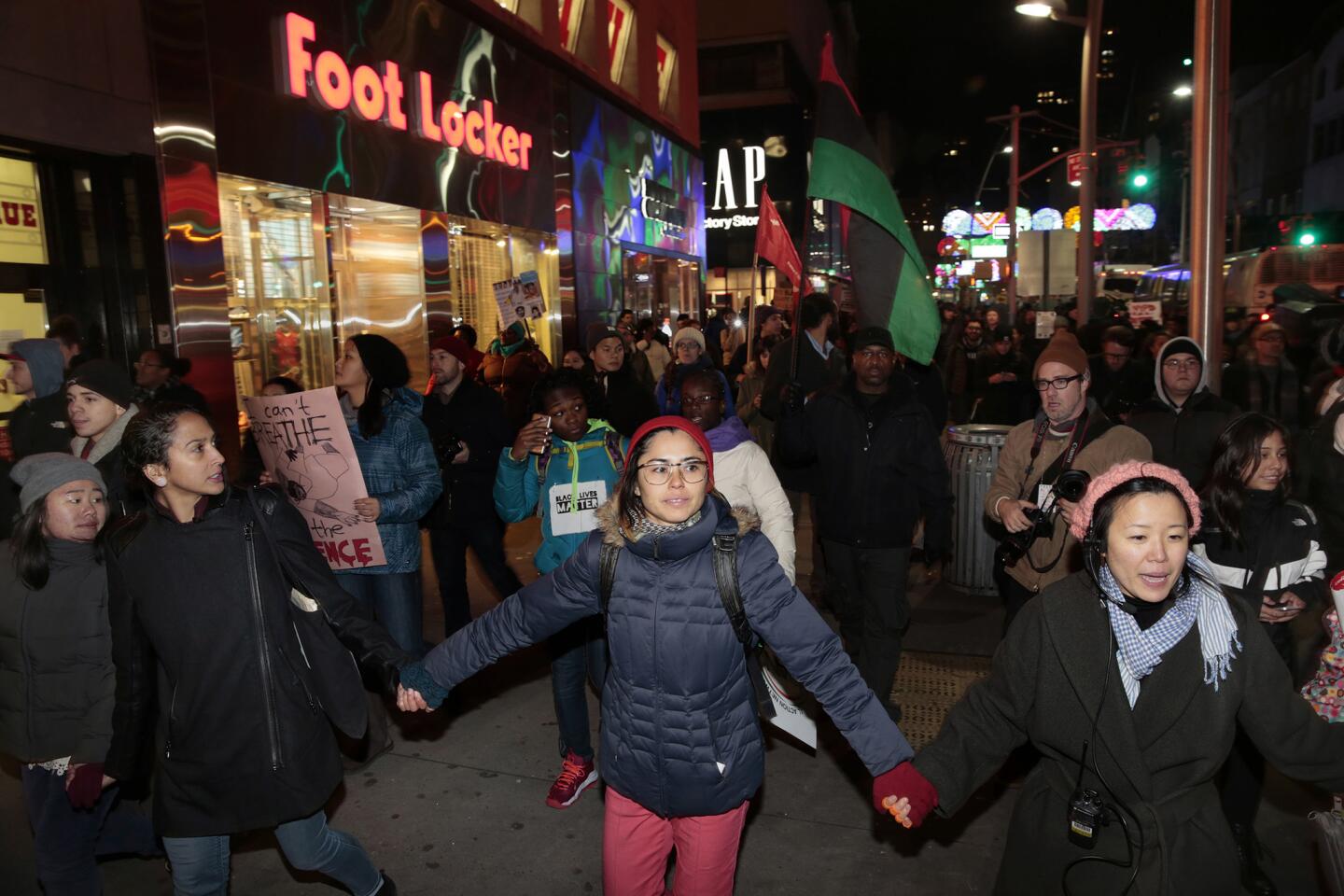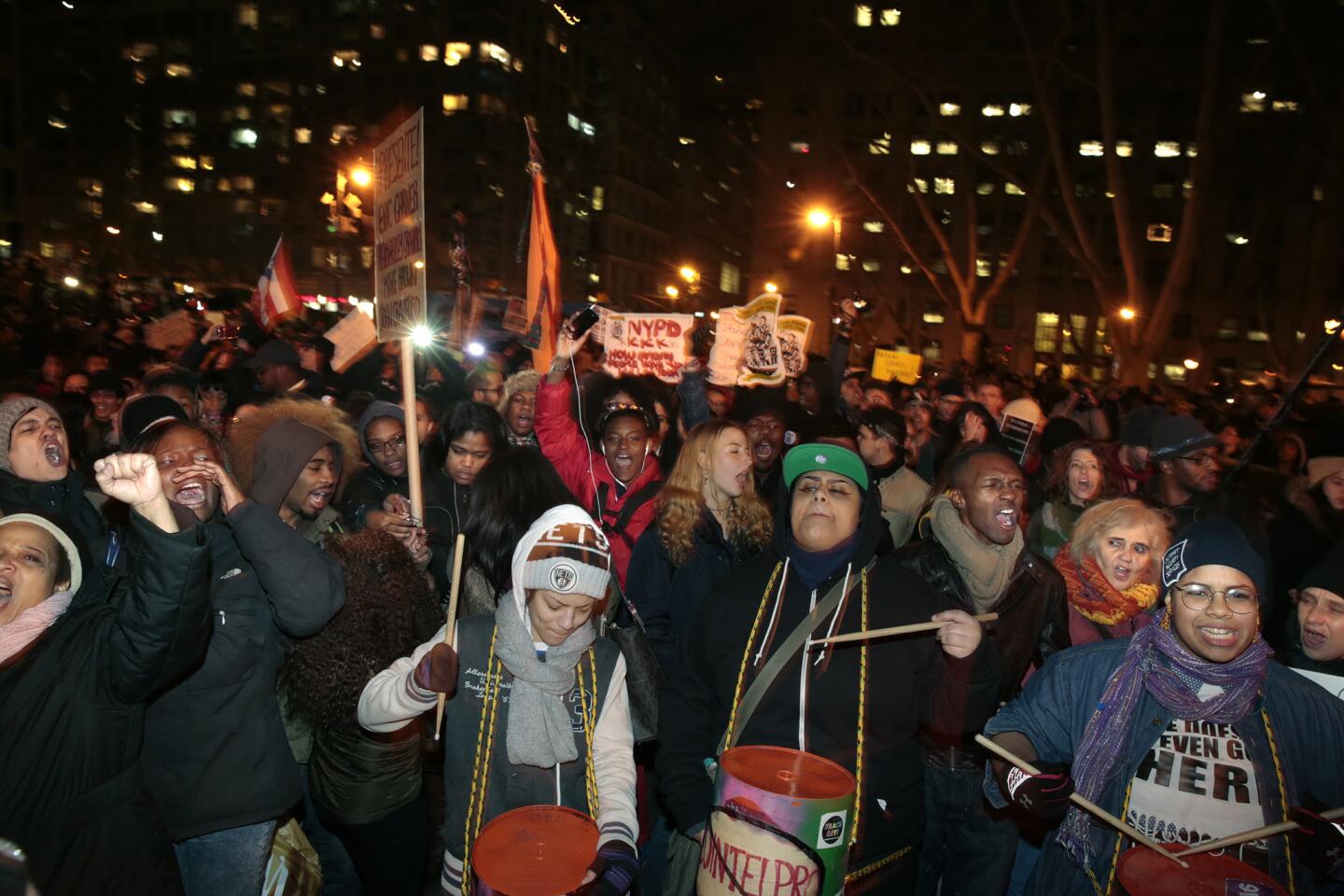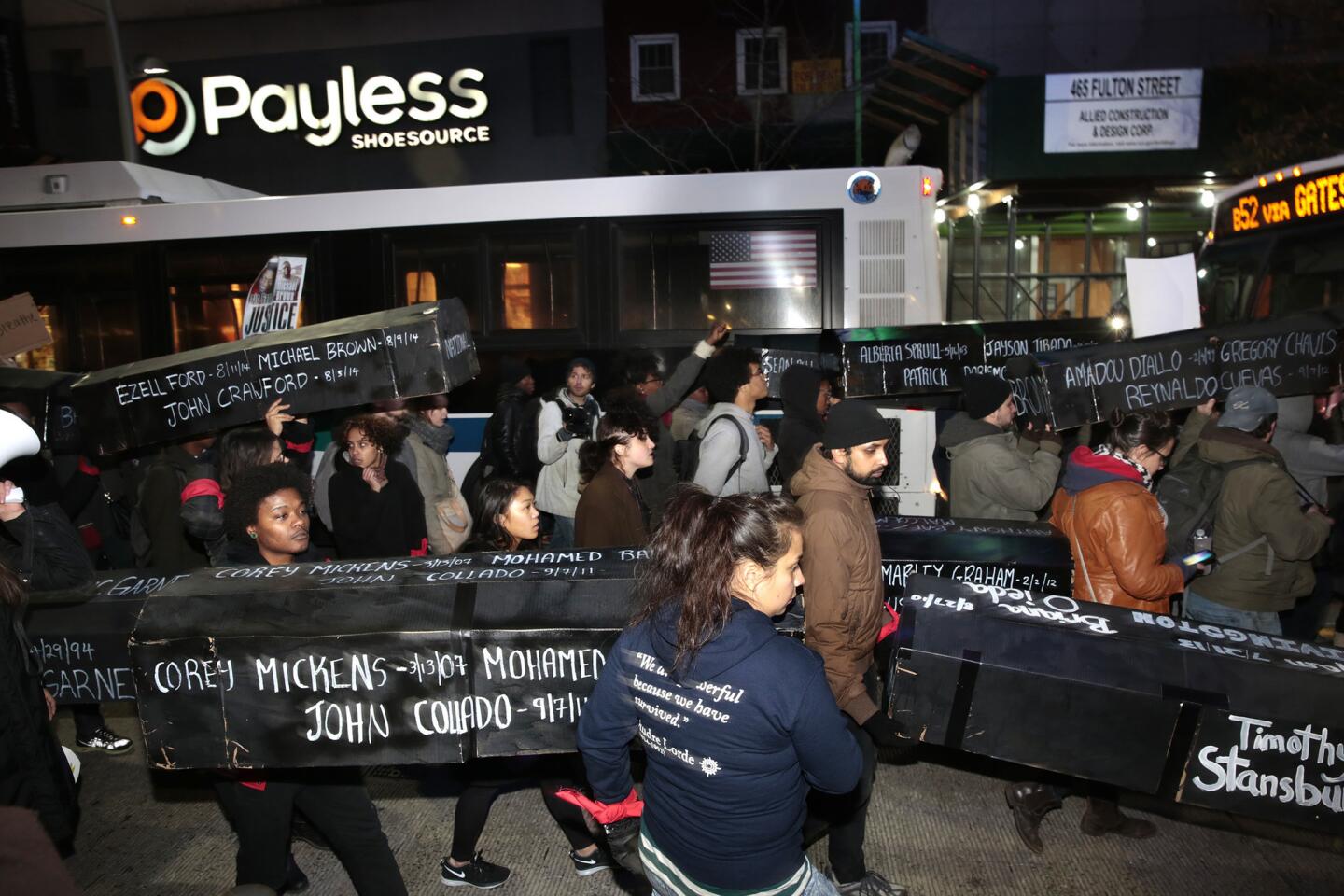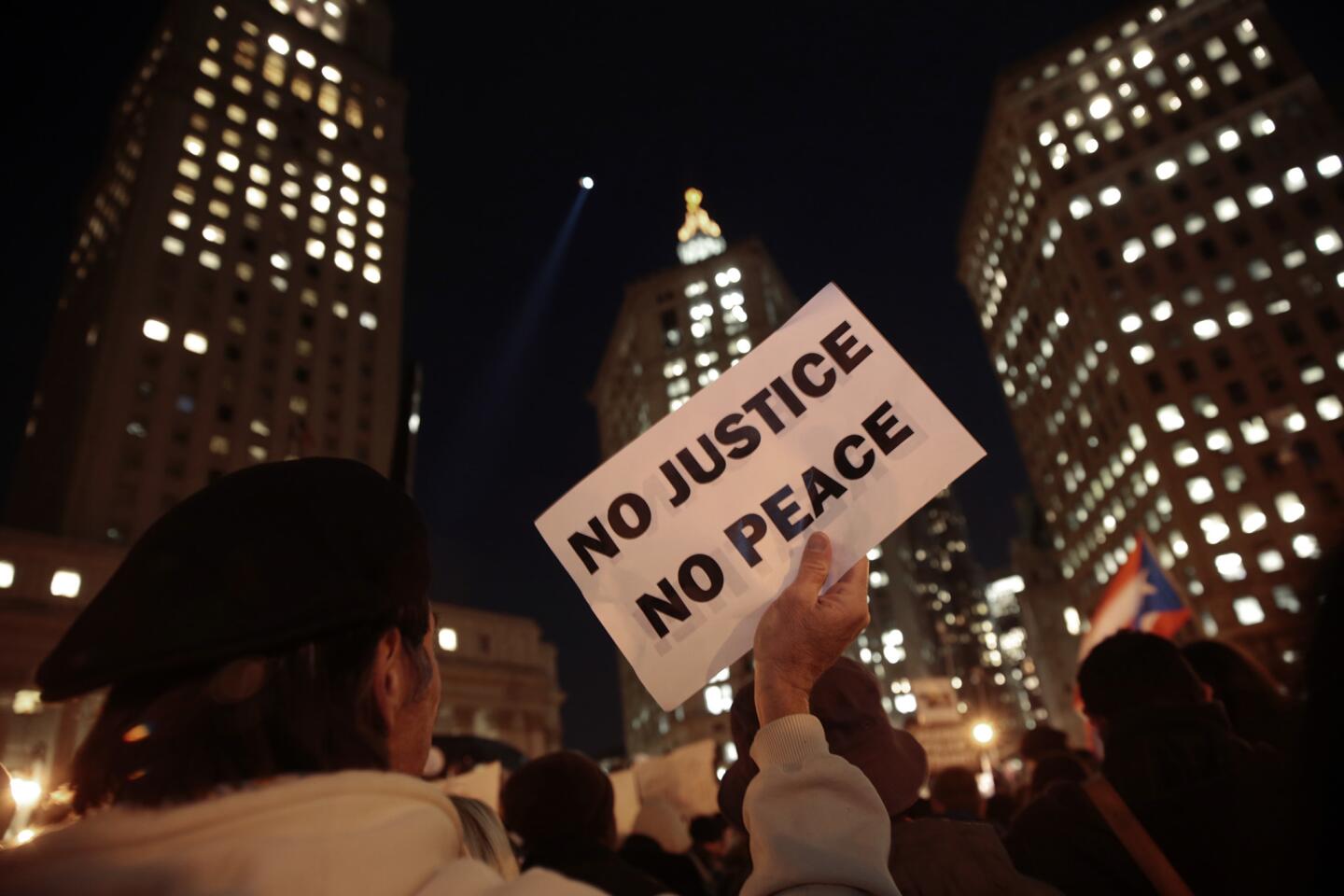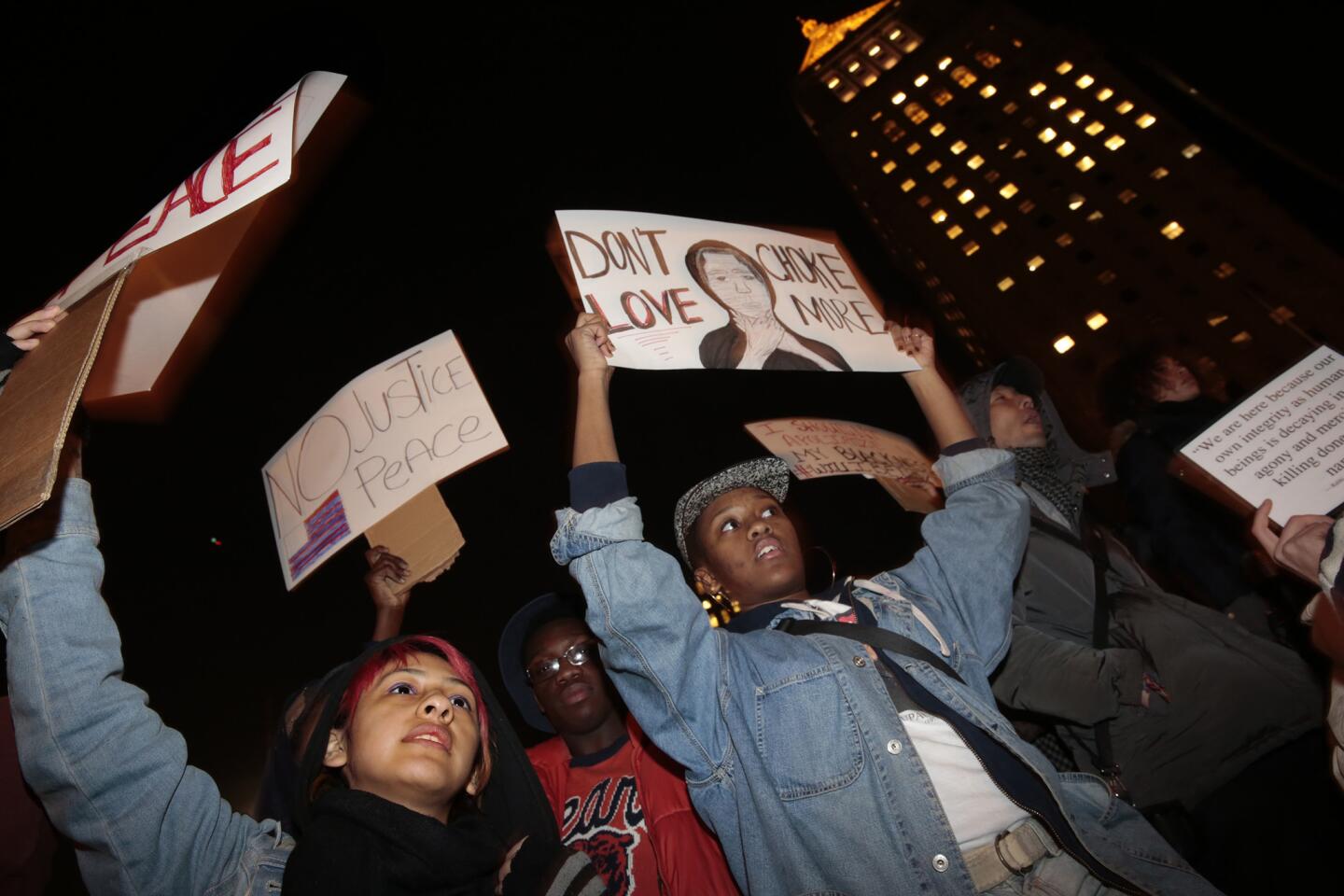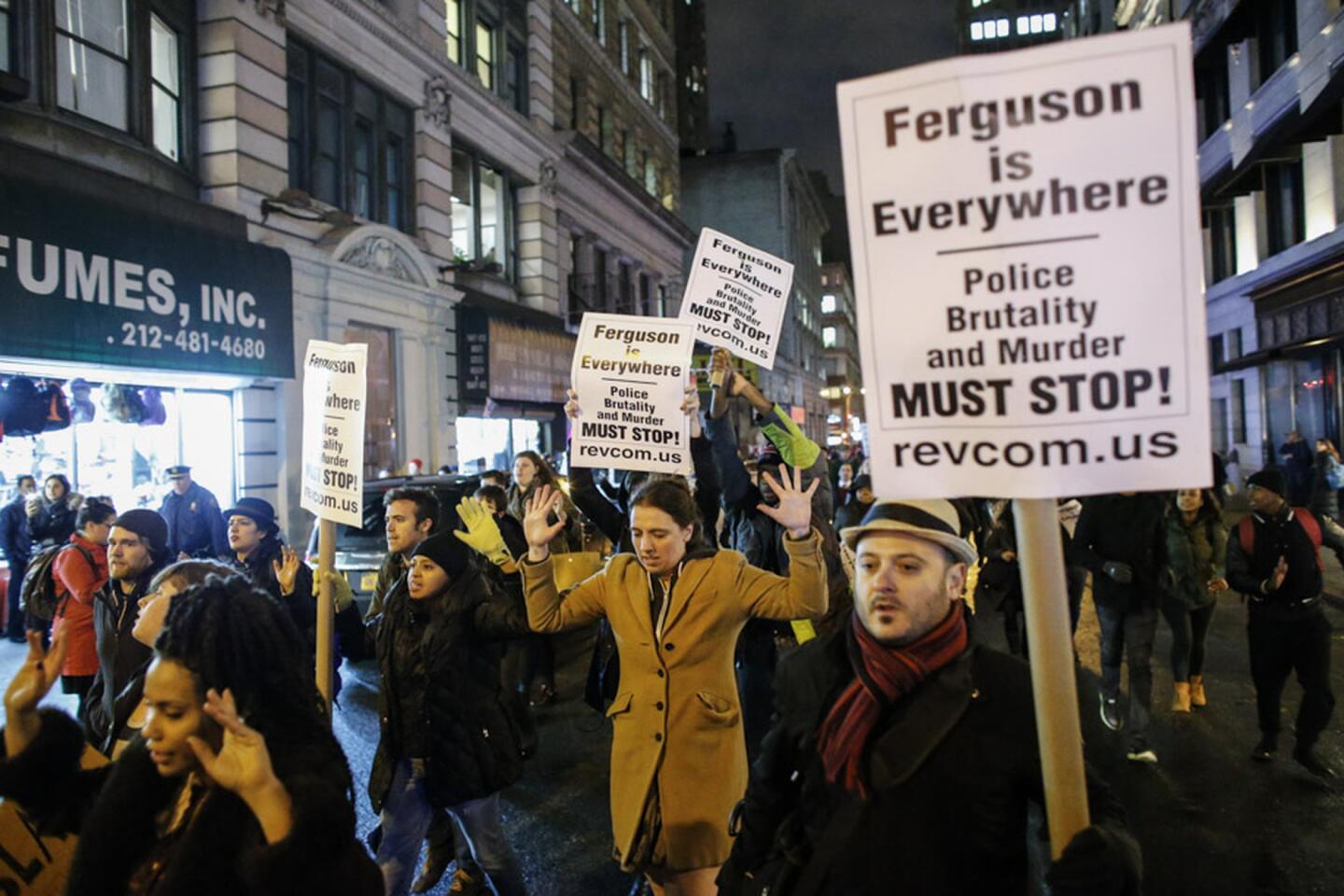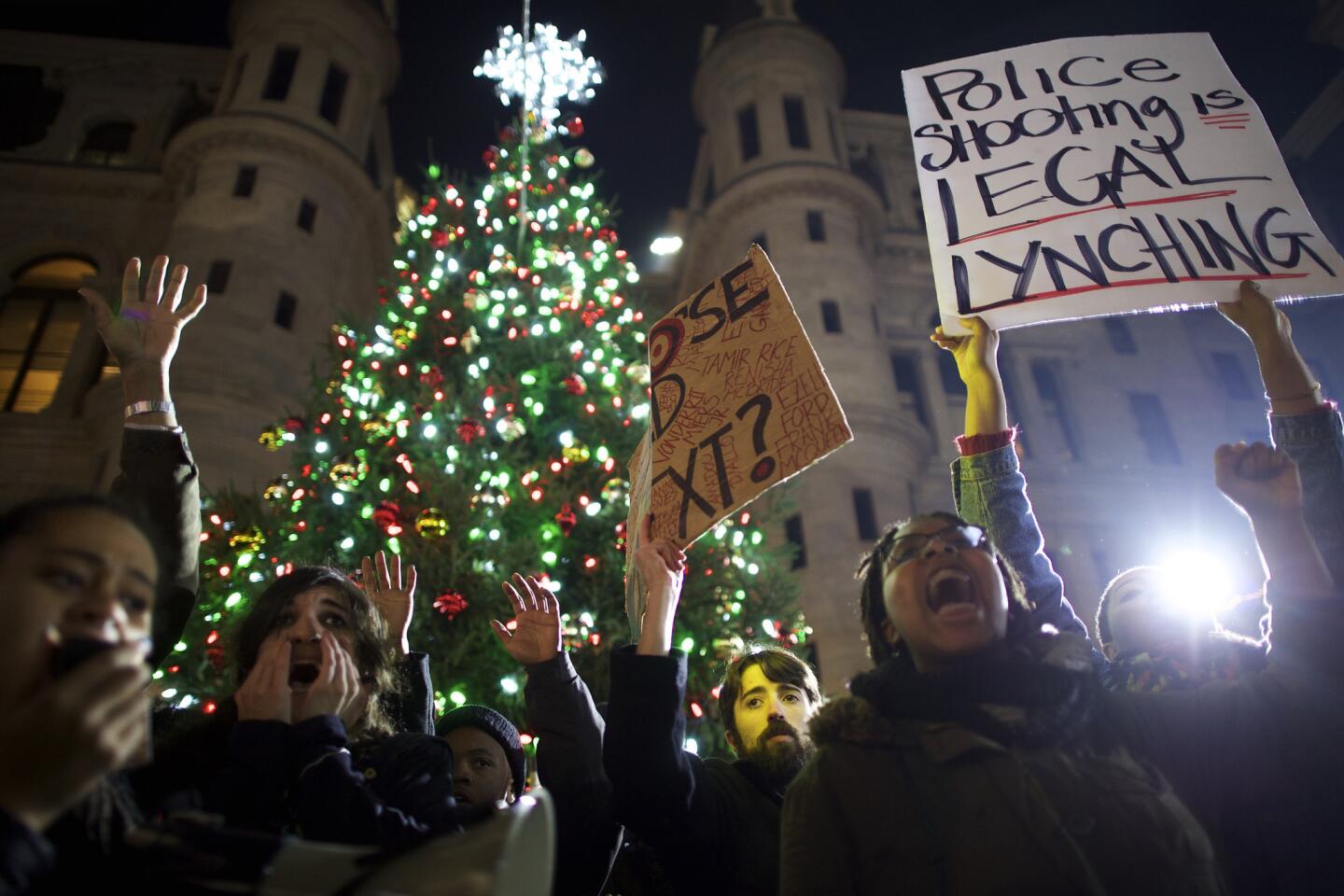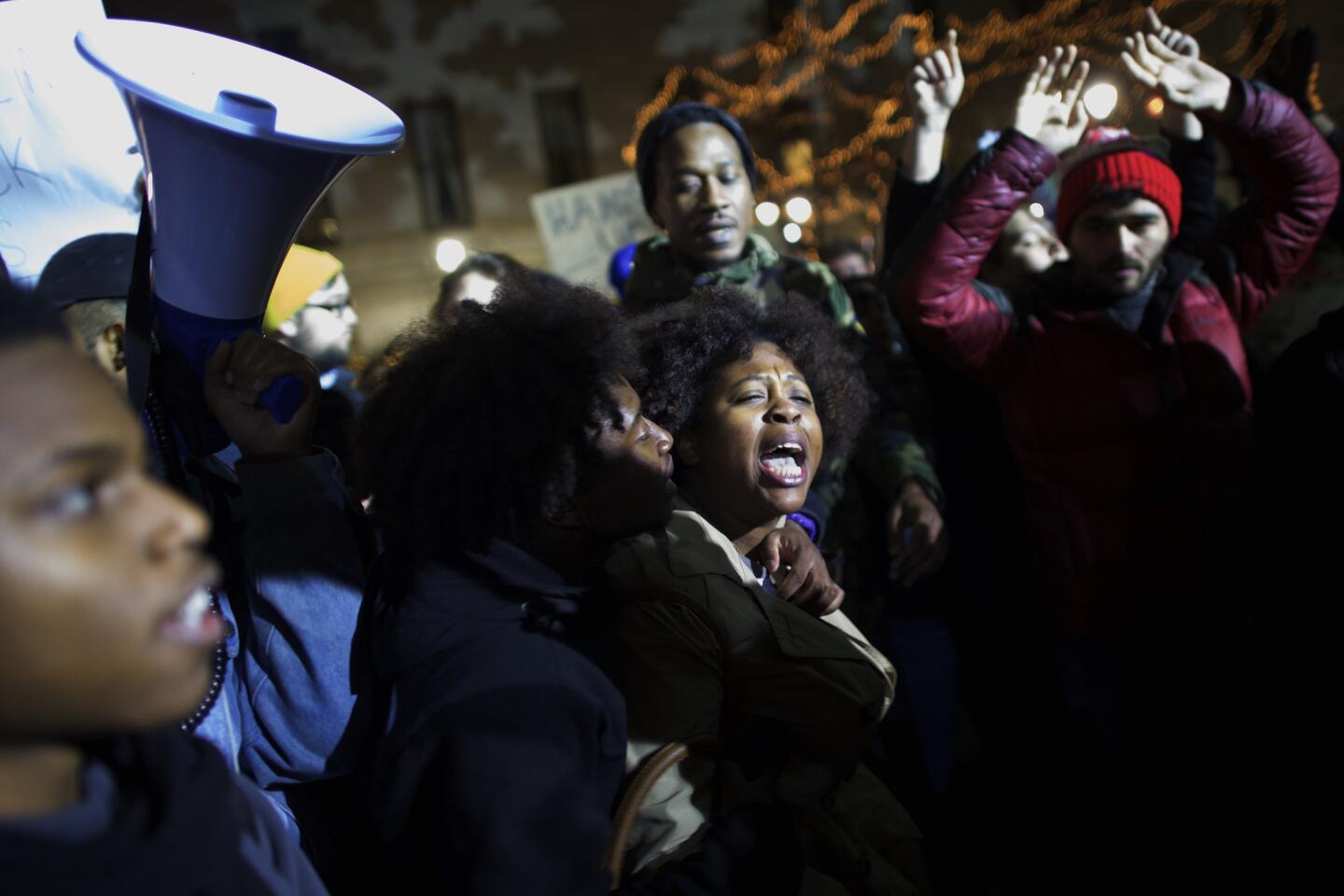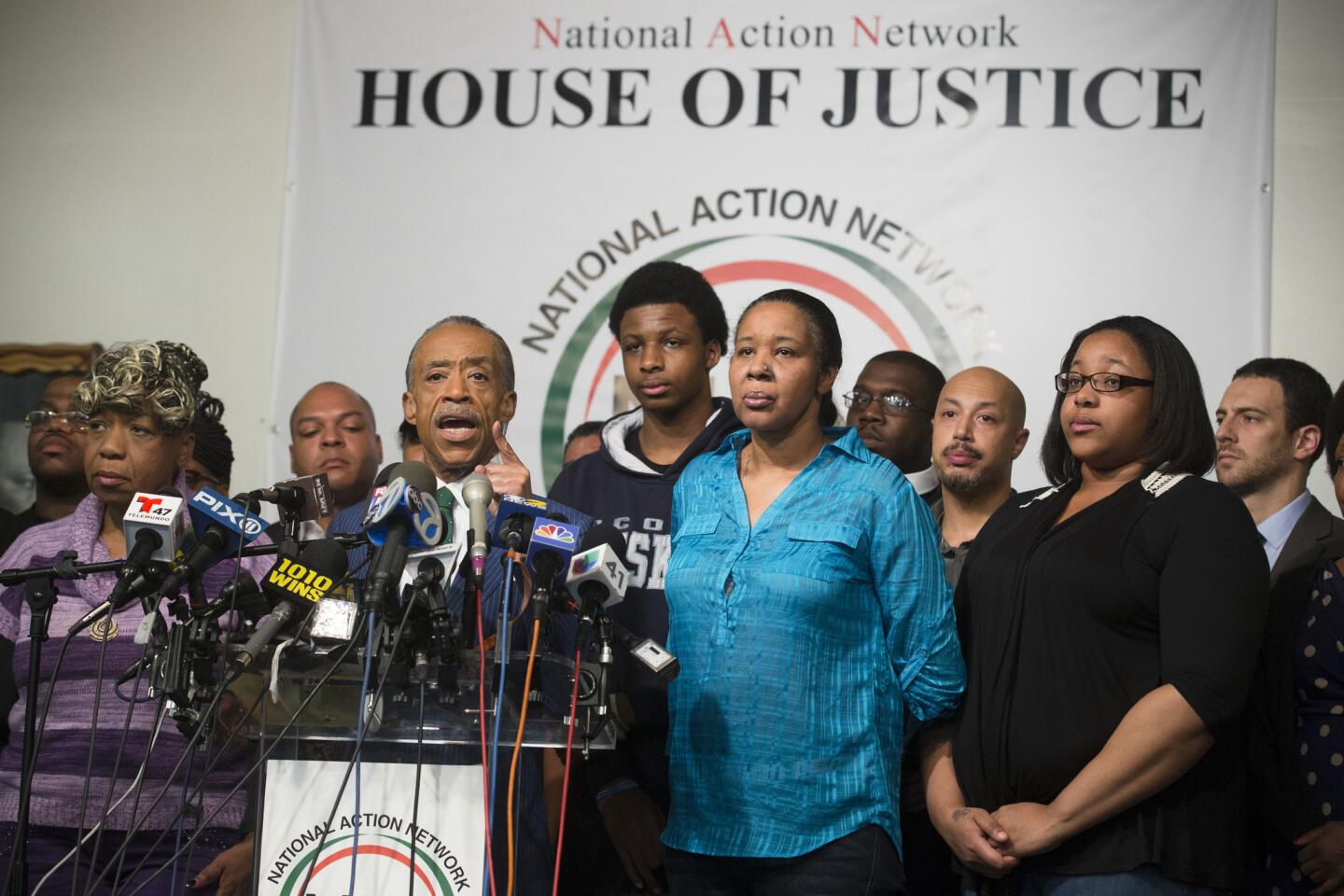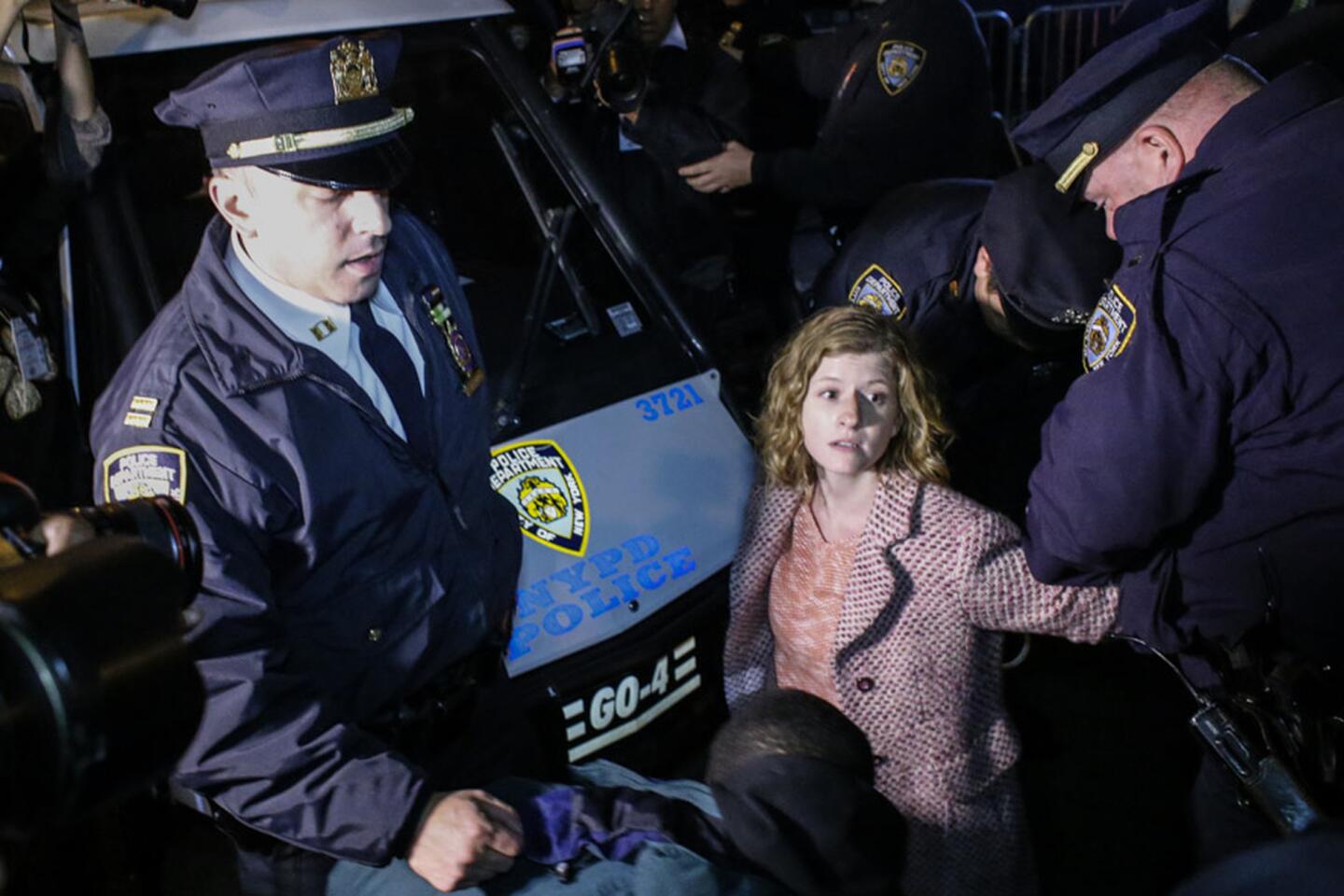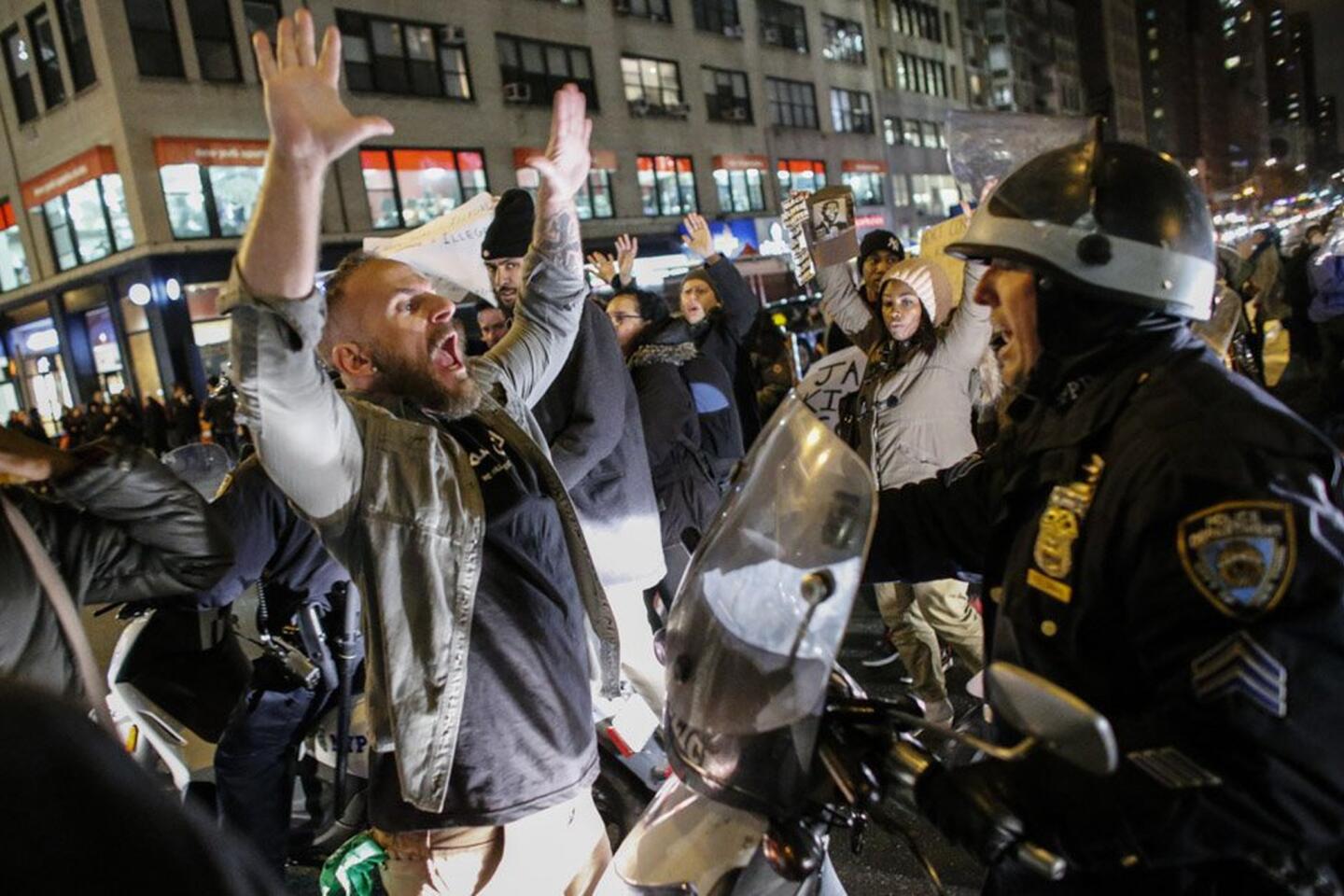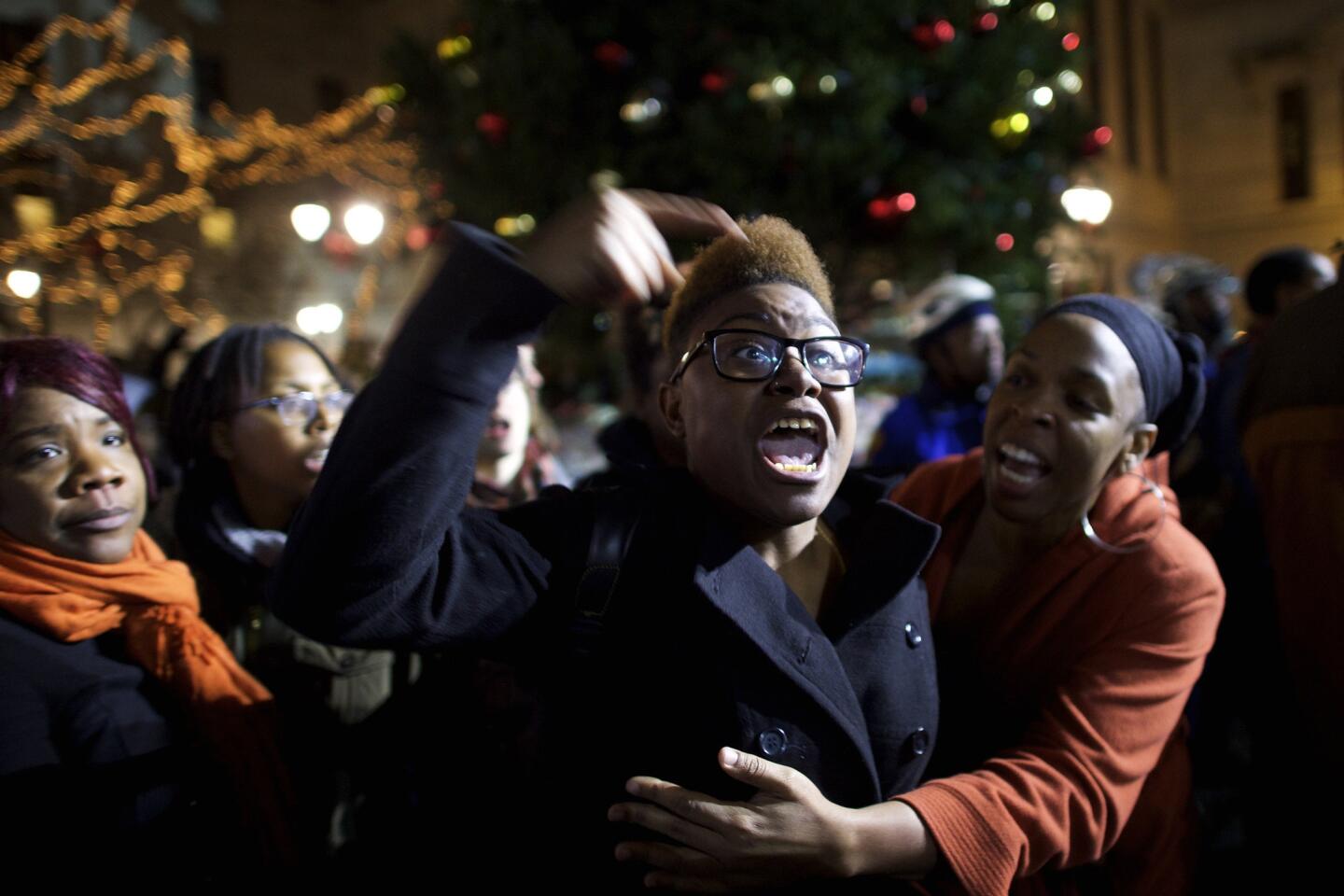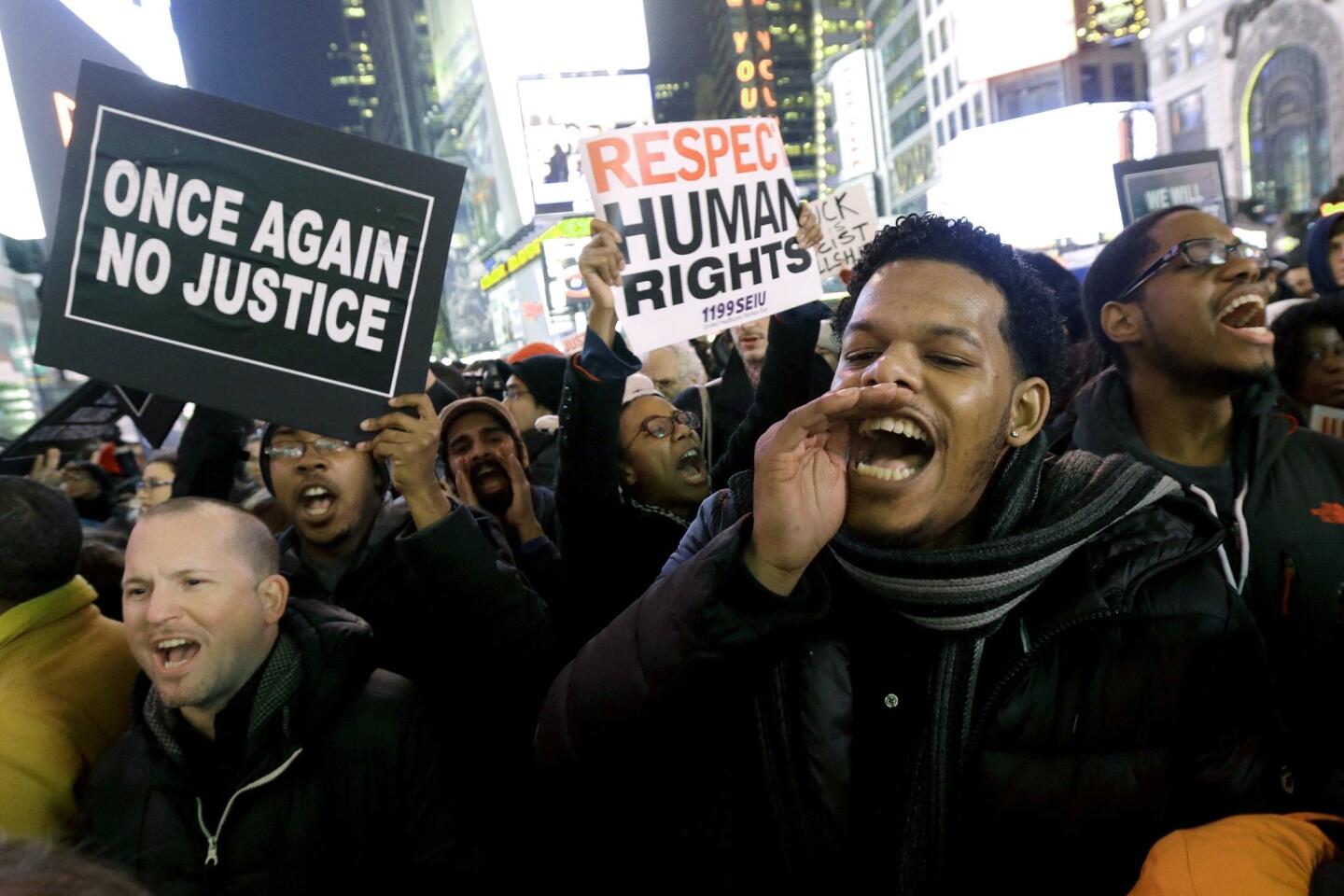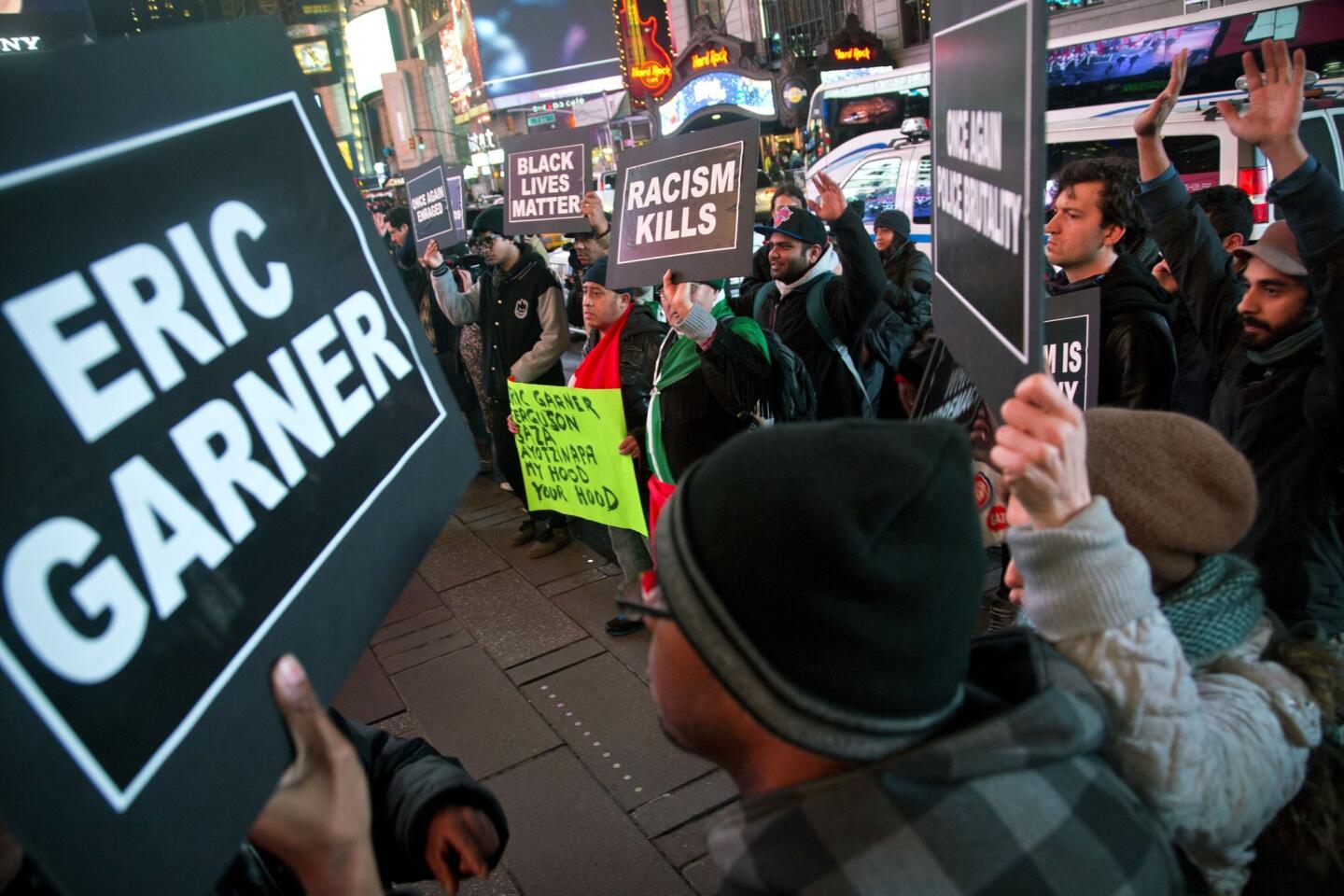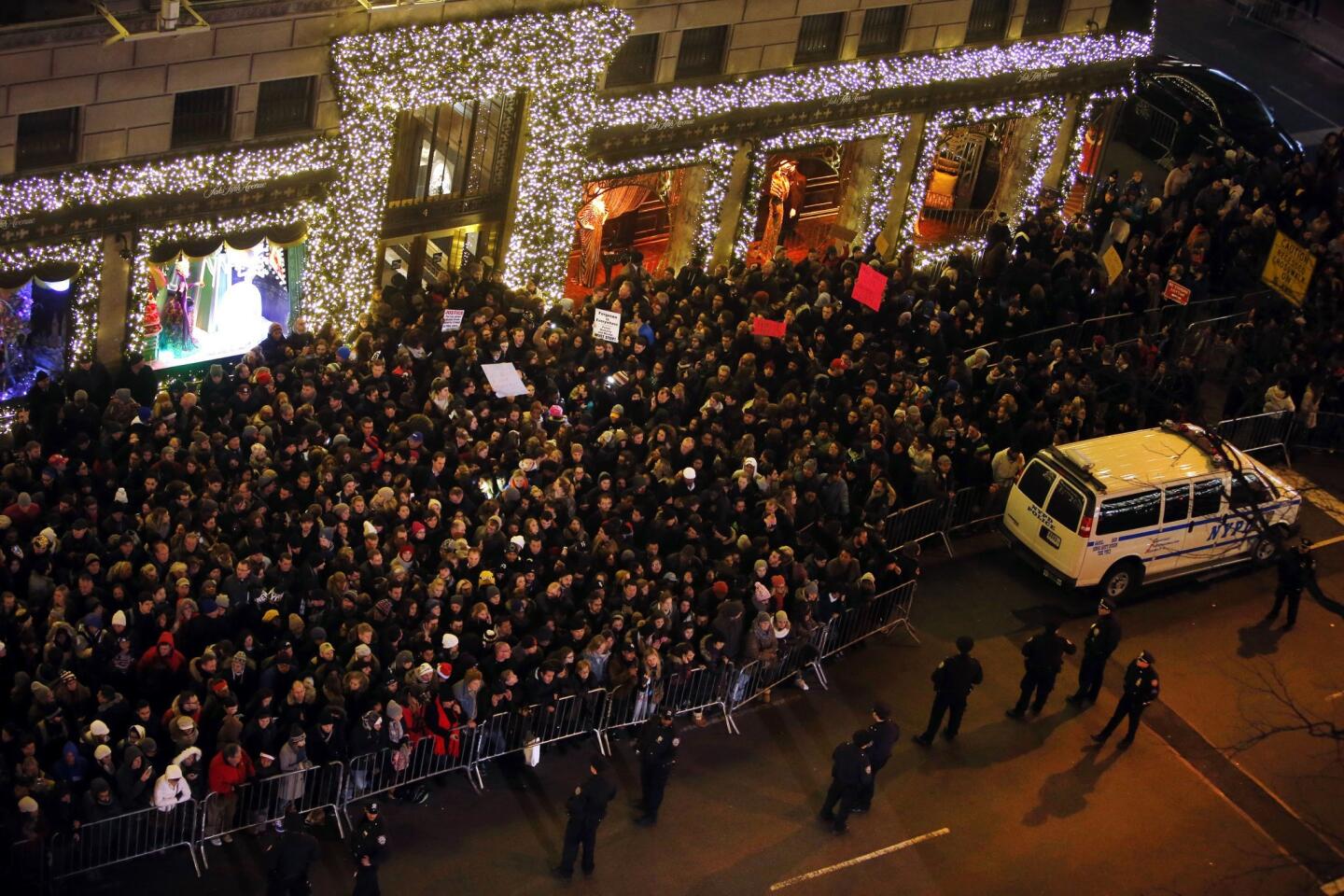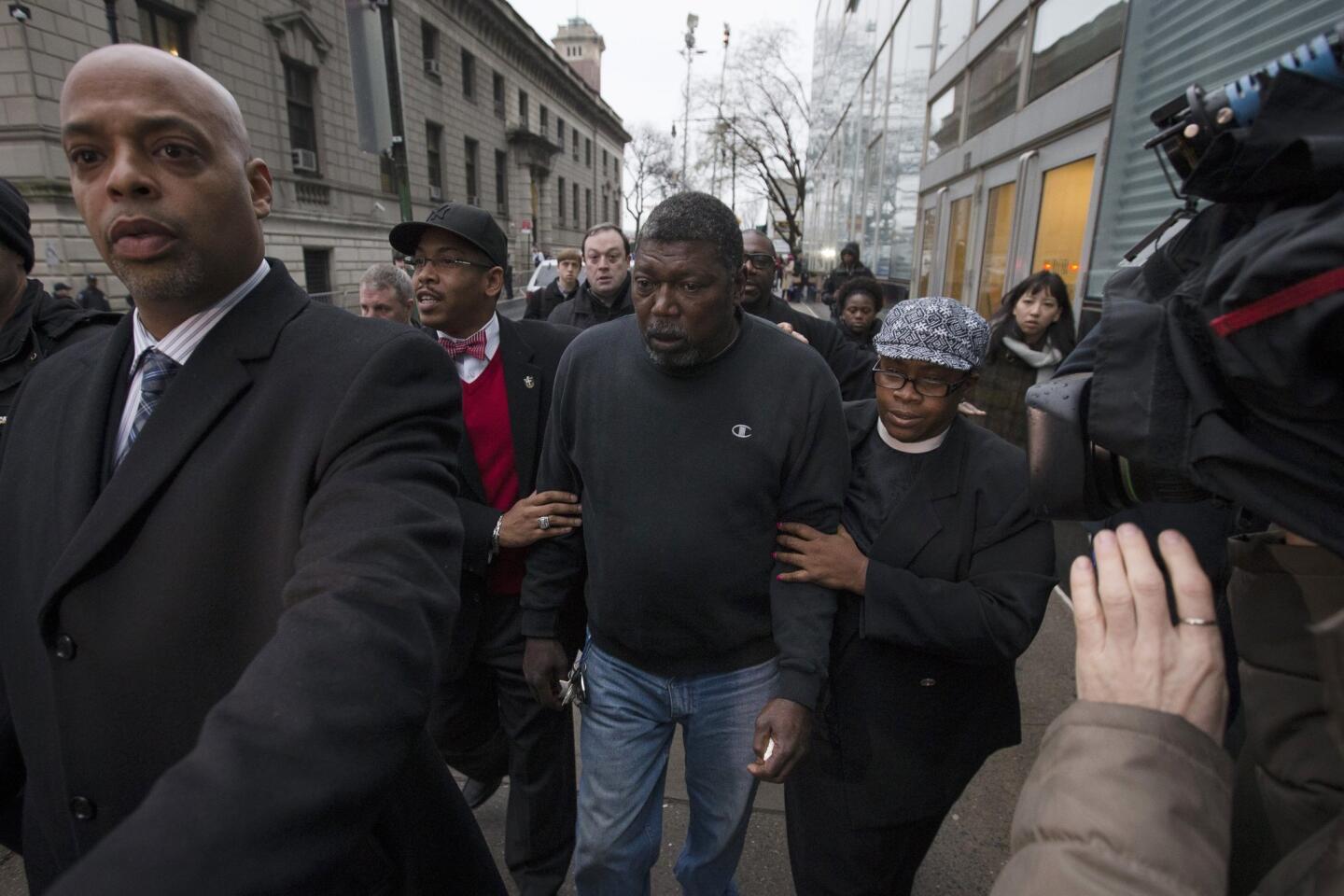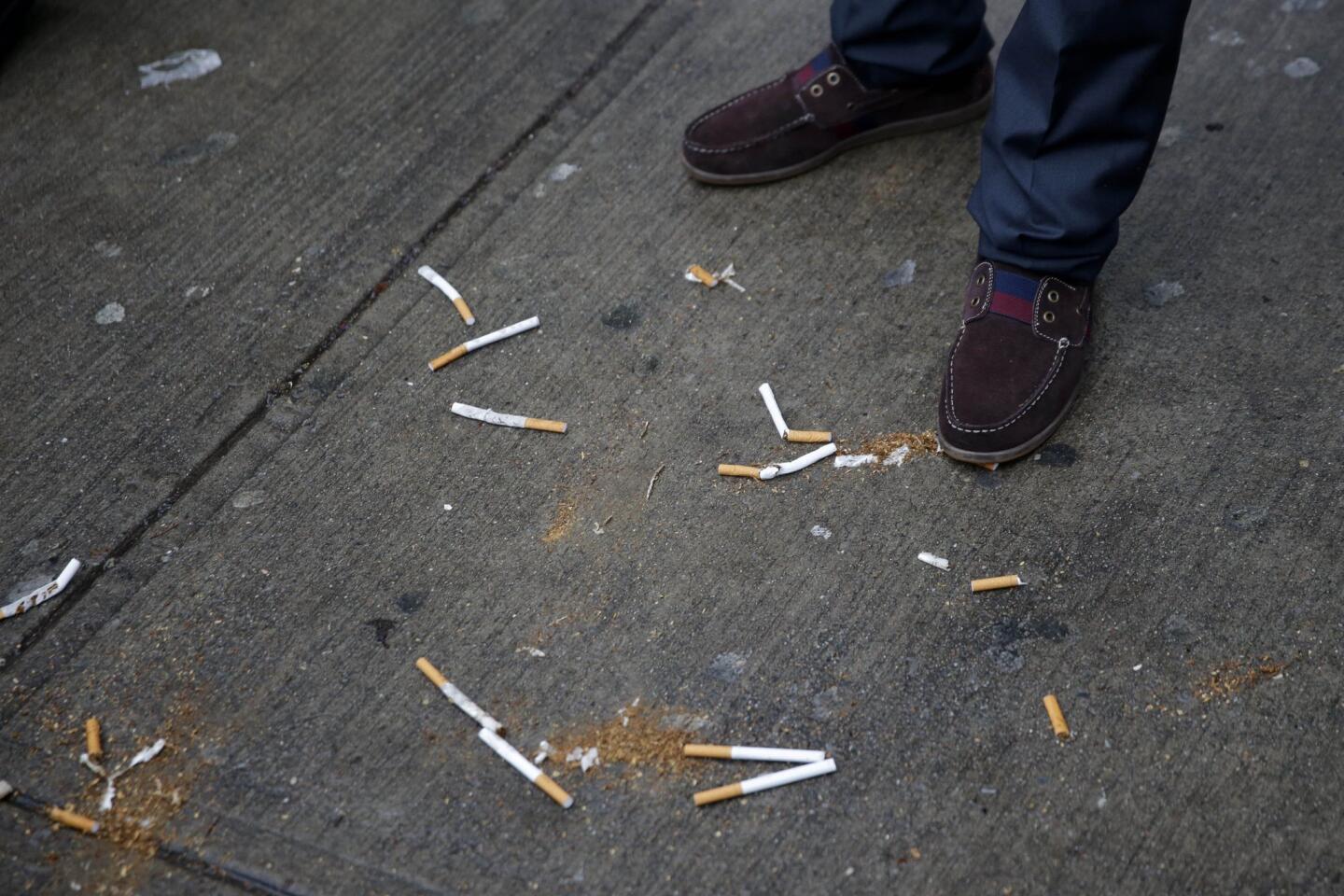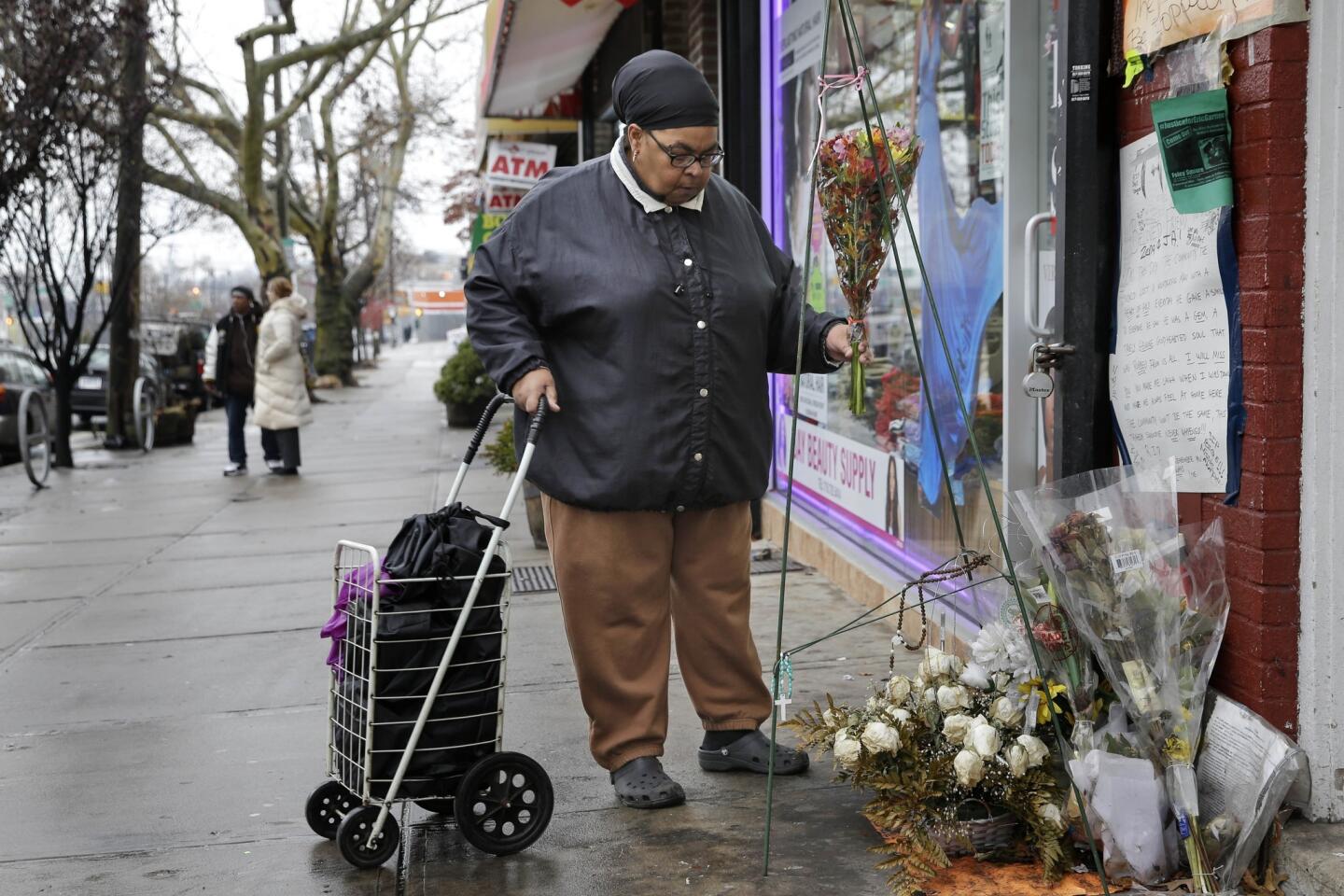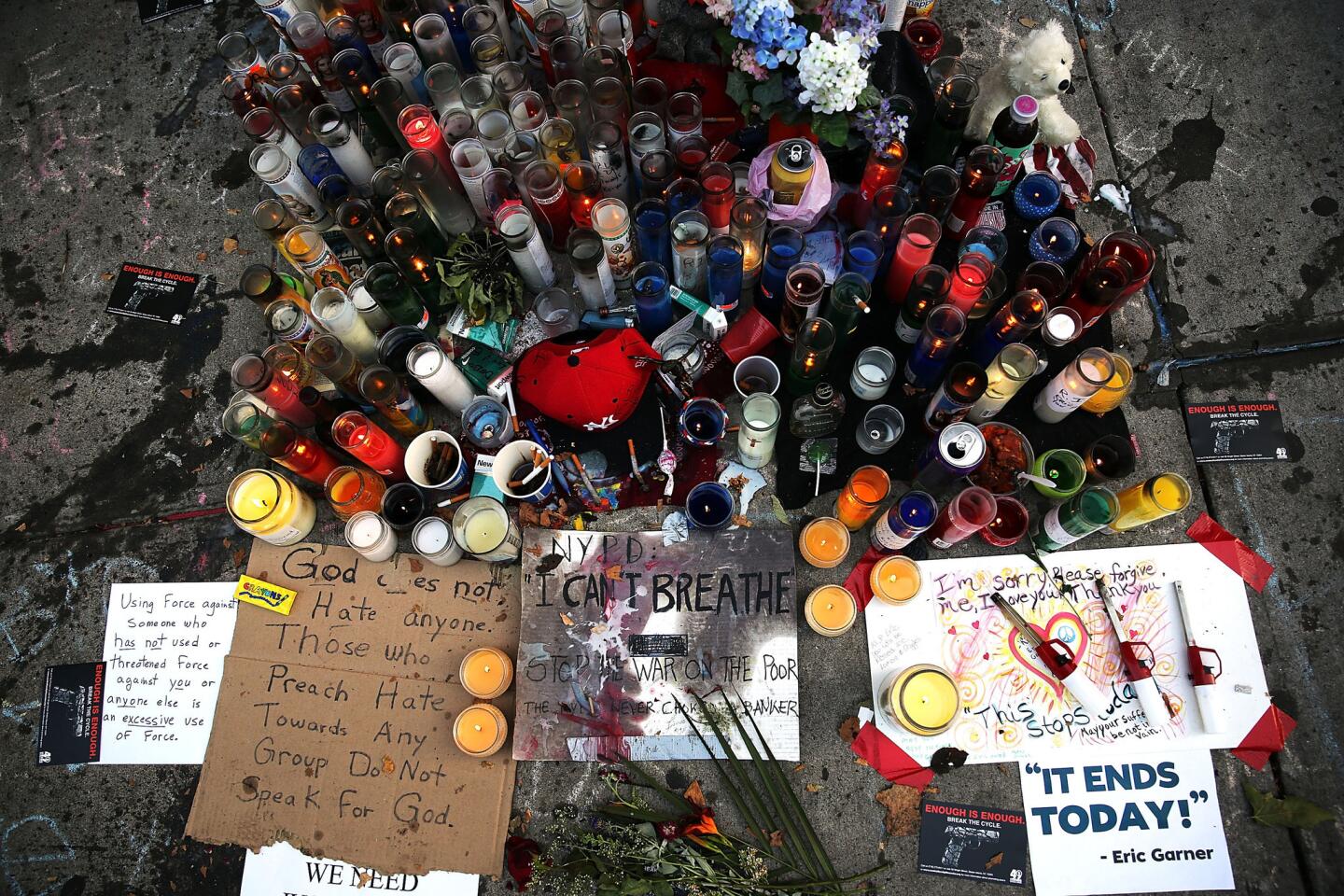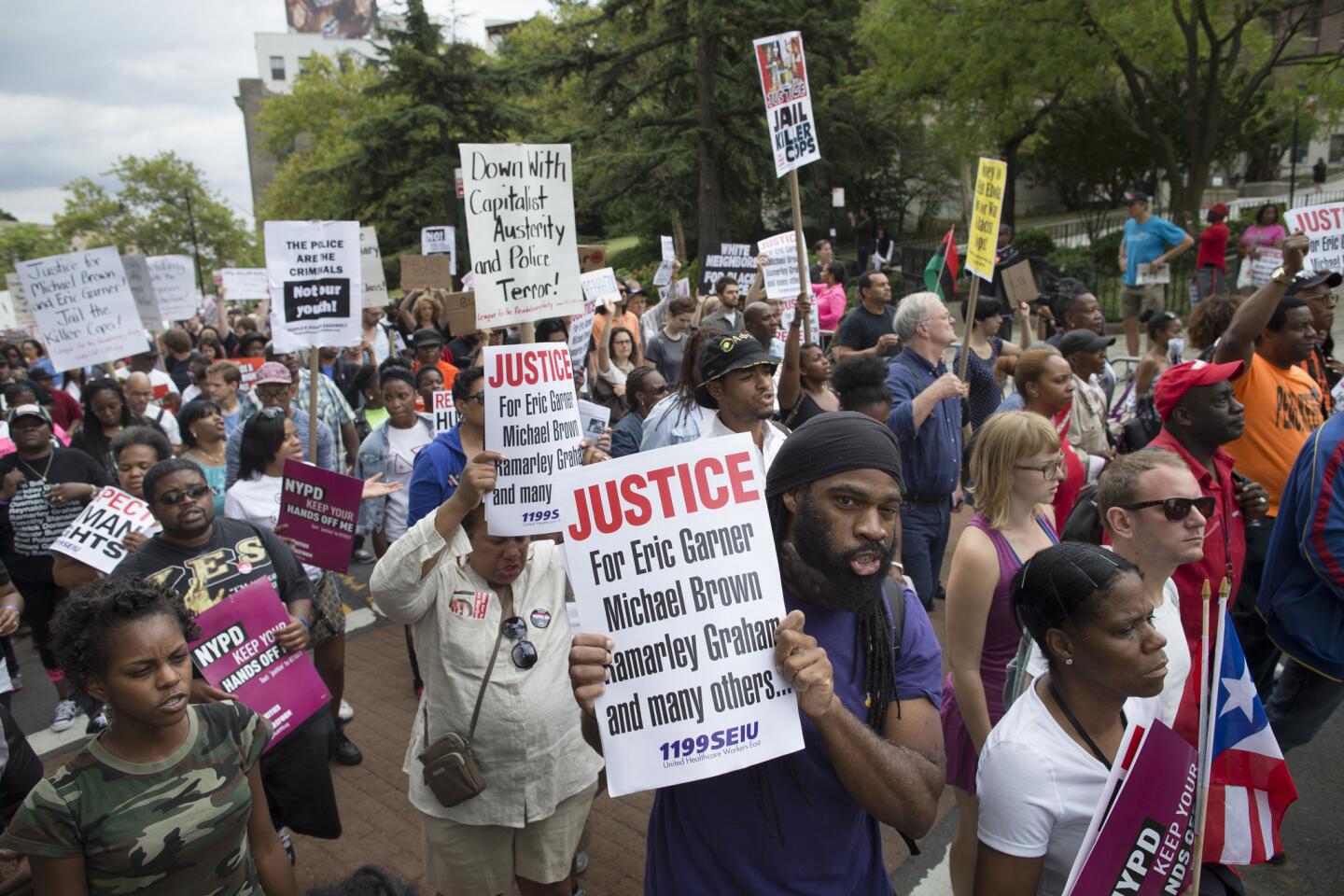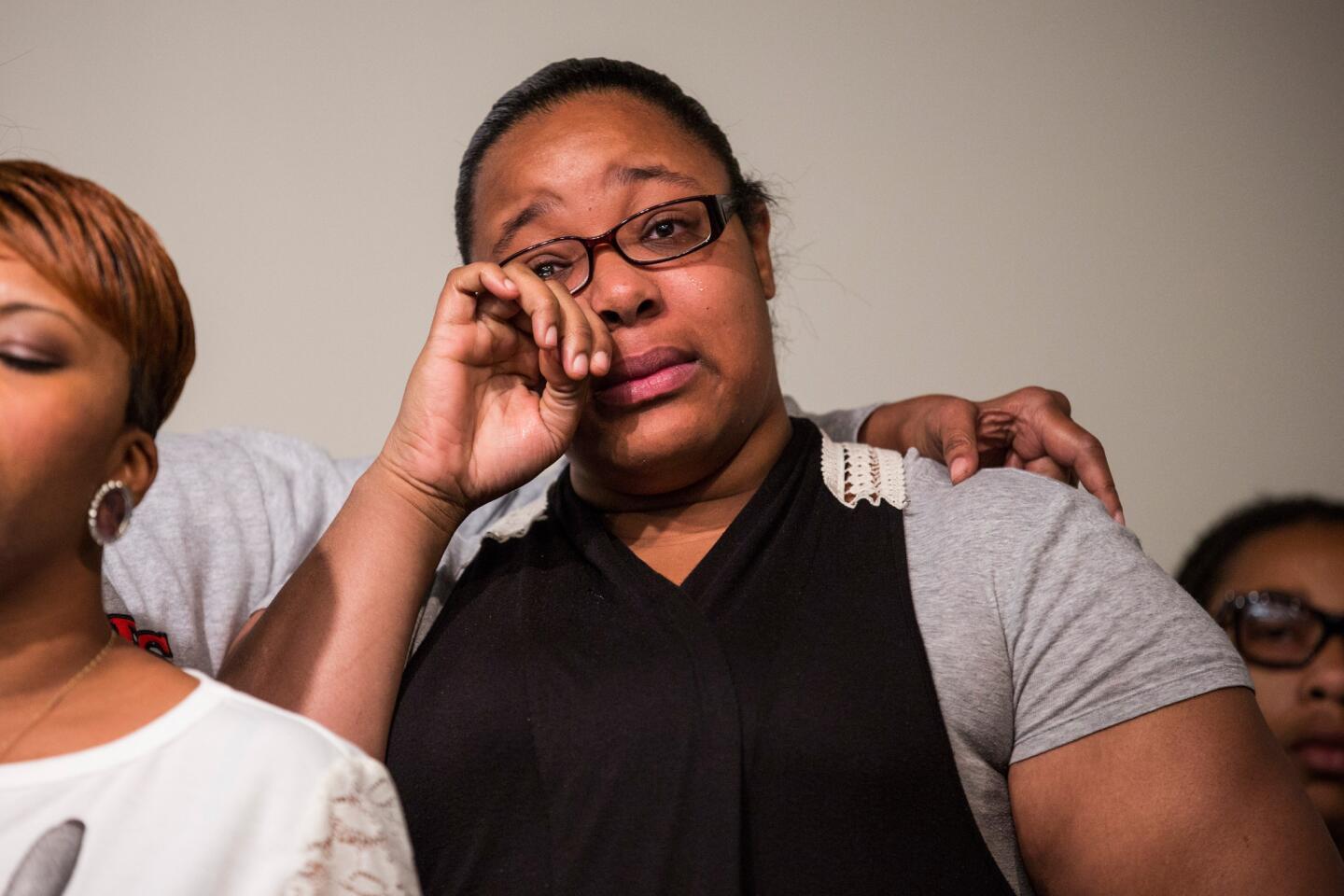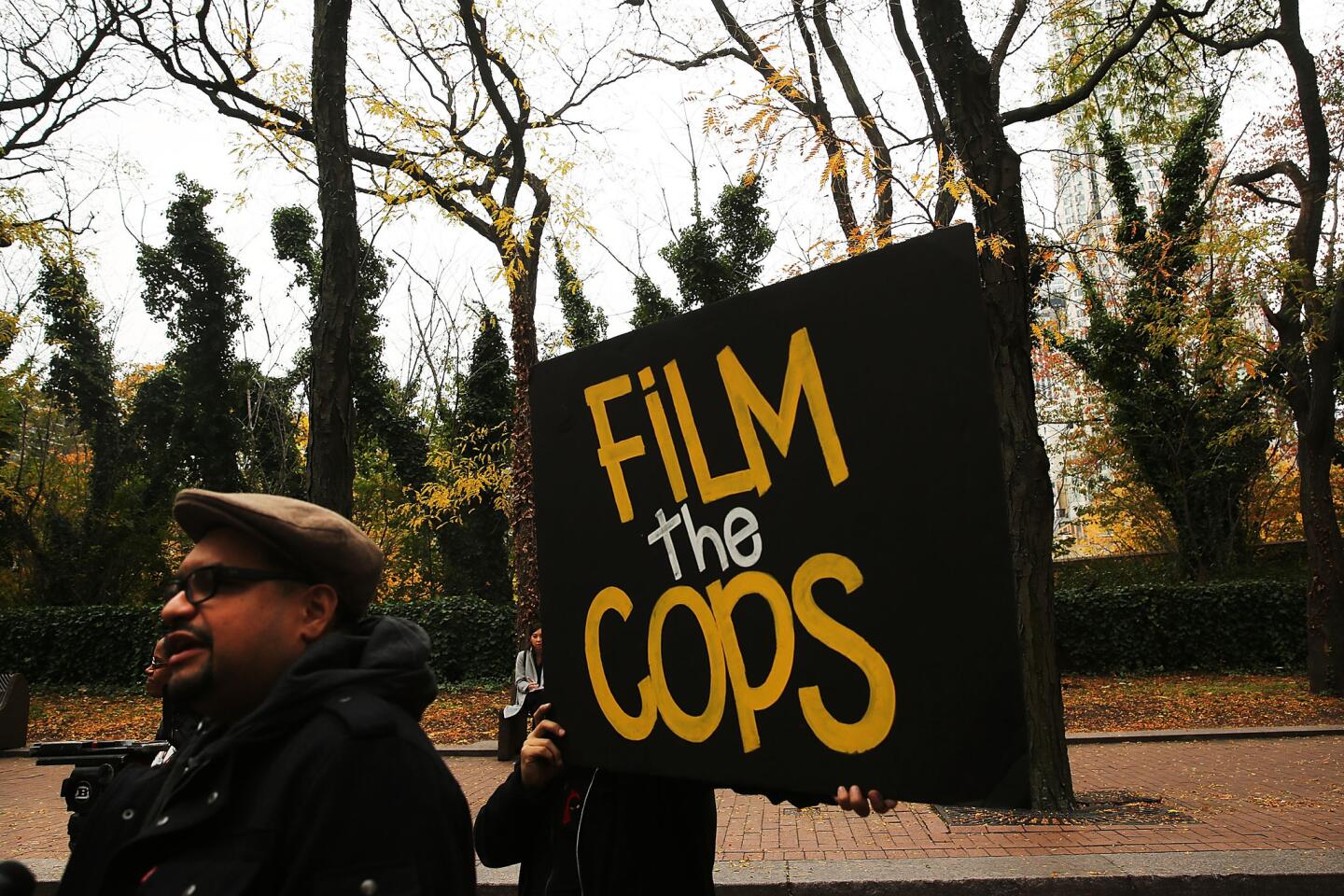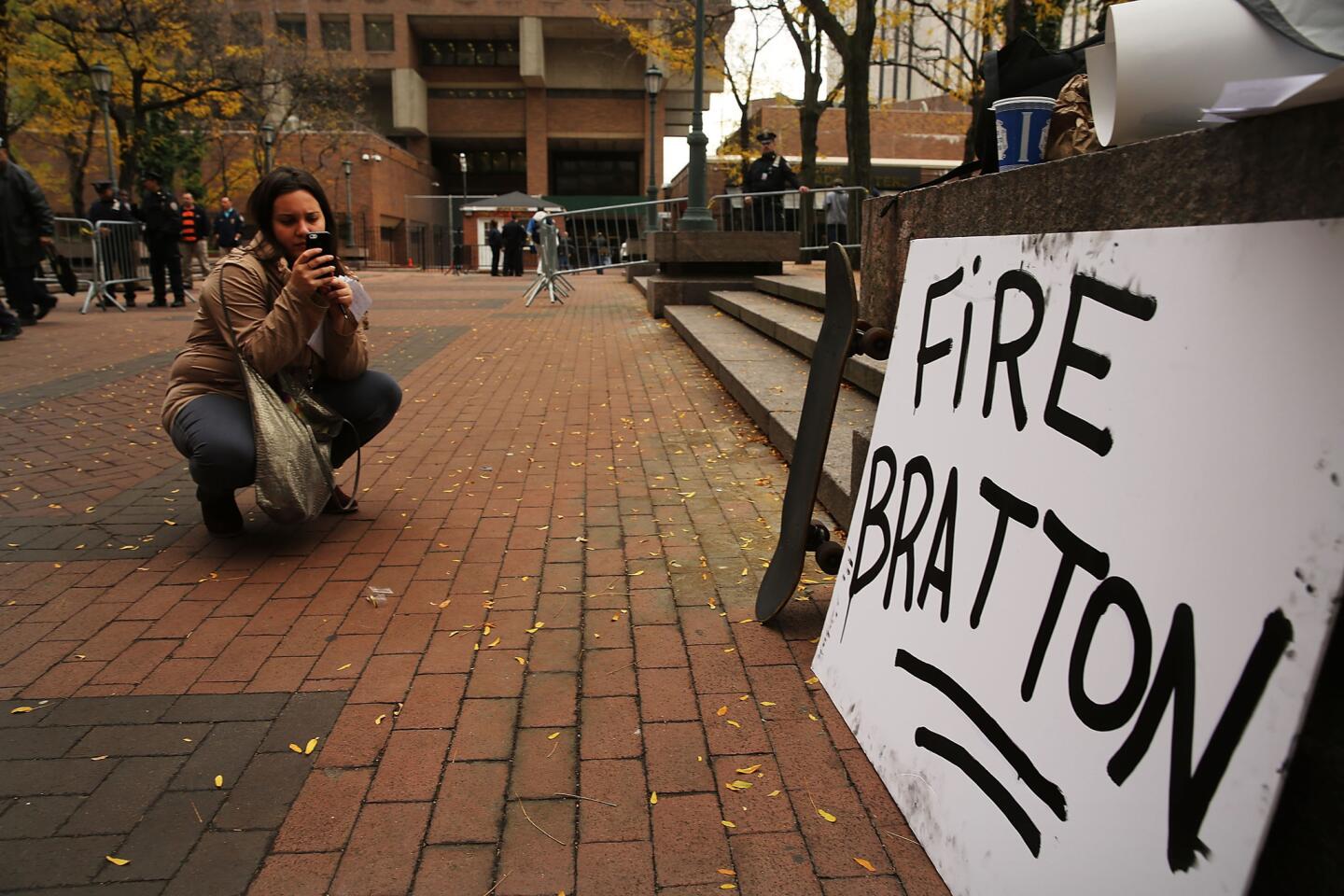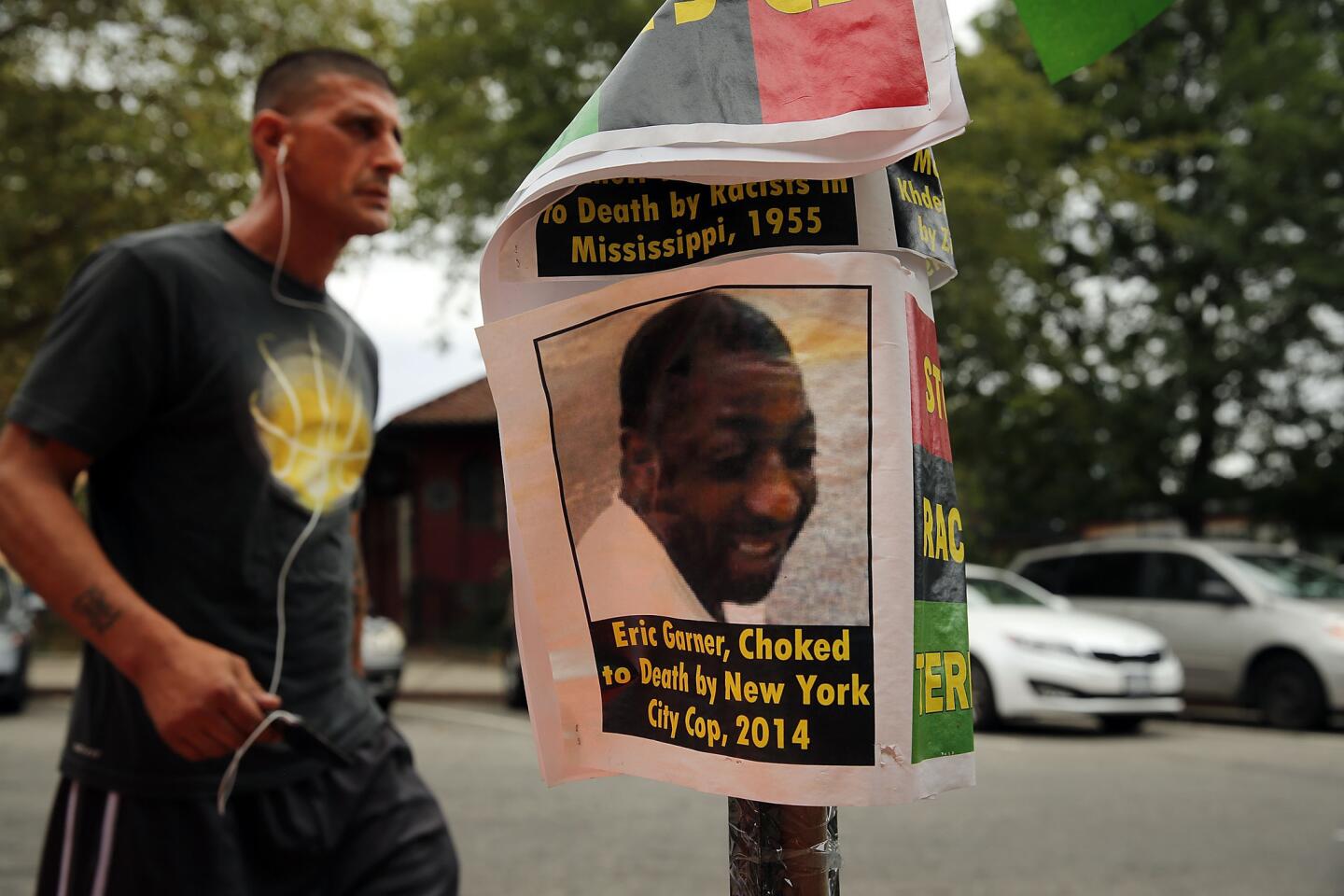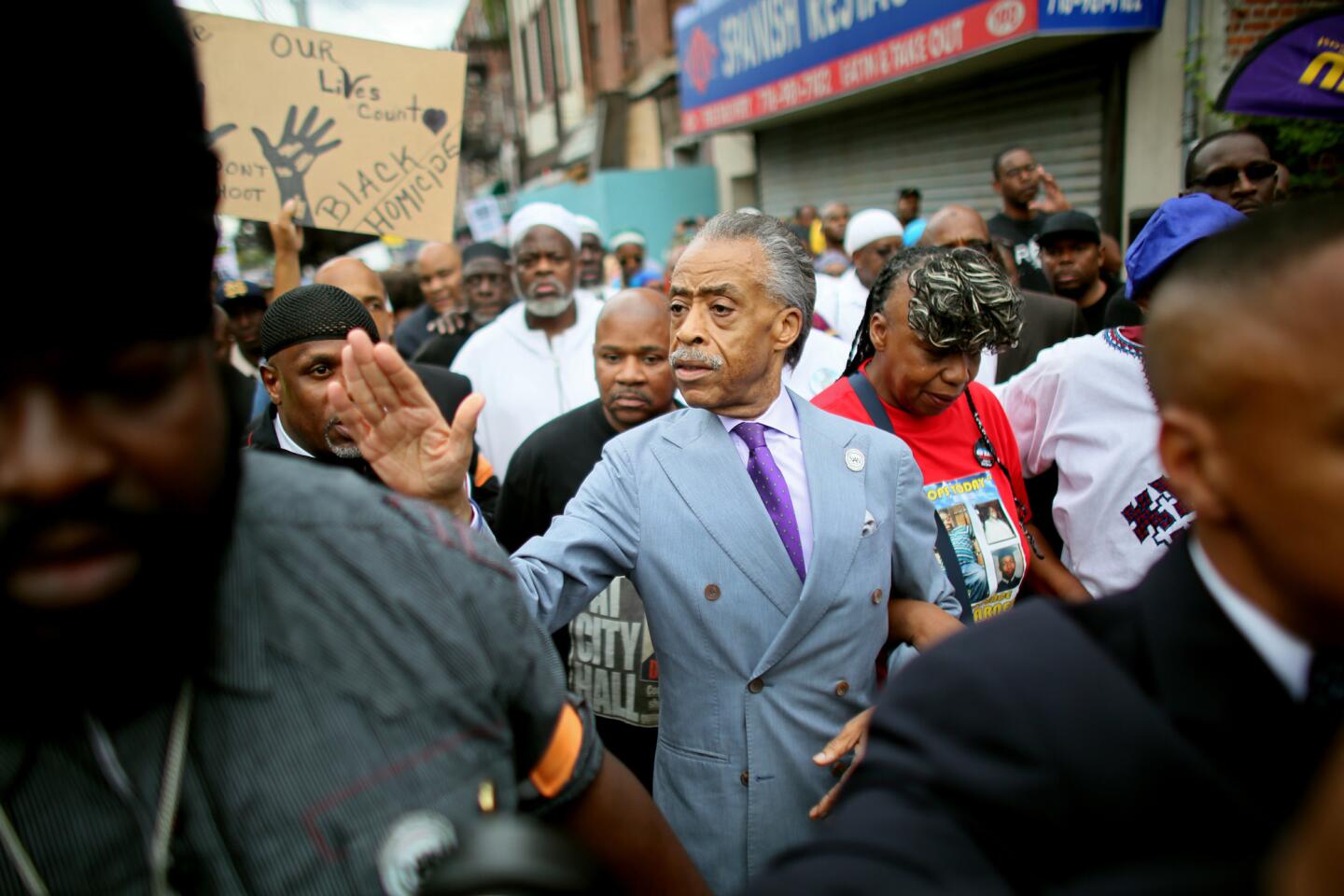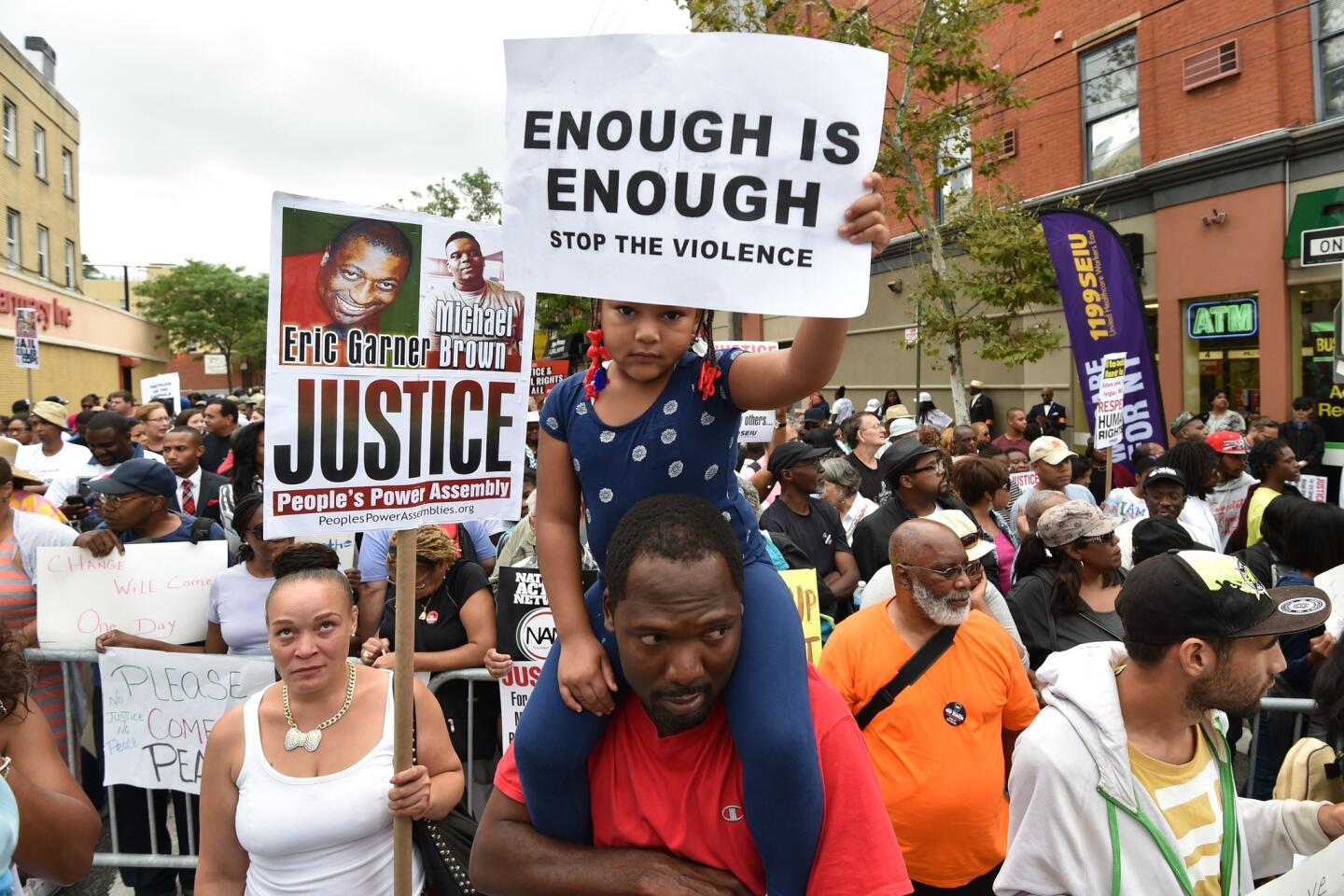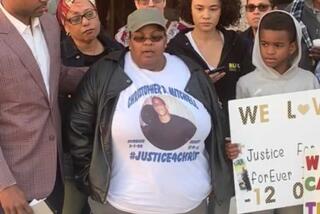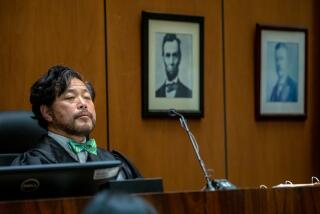In Eric Garner case, judge denies request to release grand jury transcripts
A New York judge has refused a call from local activists, the ACLU and the New York Post to release transcripts of the testimony heard by the grand jury that declined to indict a New York City police officer in the death of Eric Garner last year.
In a 12-page ruling, New York Supreme Court Justice William Garnett said the plaintiffs, including New York City Public Advocate Letitia James, failed to demonstrate a compelling need to make the testimony public.
“In summary, the movants in this case merely ask for disclosure for distribution to the public. This request is not legally cognizable reason for disclosure. What would they use the minutes for?” Garnett wrote.
Donna Lieberman, executive director of the New York Civil Liberties Union, told the Los Angeles Times her group will appeal the decision.
A grand jury’s decision not to indict Officer Daniel Pantaleo set off a wave of protests in New York and other cities, having come just one week after a grand jury in St. Louis County, Mo., made a similar decision in the shooting death of Michael Brown.
Grand jury information generally remains secret under New York law, and only the prosecuting district attorney can apply for a release of that information. Richmond County Dist. Atty. Daniel Donovan applied for, and received, a limited release of grand jury information in December, days after the grand jury decision.
But the court allowed Donovan to disclose only what type of evidence was reviewed by the grand jury and the number of witnesses who testified. Transcripts of witness testimony, Garner’s autopsy report, the exact charges Donovan pursued against Pantaleo and other key information was not made public.
The New York Civil Liberties Union, in conjunction with James’ office, the NAACP and the New York Post, sued in December to make that information public.
“The failure to indict the officer responsible for the death of Eric Garner has left many wondering if black lives even matter,” Lieberman said in a statement. “Sadly, today’s decision will only leave many asking that same question again.”
The decision was also met with frustration by the Rev. Al Sharpton’s National Action Network. The activist group said the Garner family is still pursuing other legal options, and will speak publically about the issue on Saturday.
“A grand jury does not determine conviction and it only determines whether there is enough evidence to go to trial. If a video of a man being choked and saying 11 times ‘I can’t breathe’ was not enough to go to trial, only a release of the grand jury minutes could explain to us why it was not,” the statement read. “With the judge’s decision, the public is left to speculate as to why not, or to assume that the district attorney did not present all of the available evidence to the grand jury.”
Garner, a 43-year-old father of six, died July 17 during a clash with Pantaleo and several other officers in the Tompkinsville section of Staten Island, N.Y. A cellphone video showed Garner, whose family has claimed officers from the department’s 120th precinct routinely harassed him, arguing with Pantaleo as the officer tried to arrest him on suspicion of selling untaxed cigarettes on the sidewalk.
Pantaleo can be seen wrestling with Garner in the video, and he places Garner in what some have called a chokehold as the two tumble to the asphalt.
“I can’t breathe,” Garner can be heard saying as he gasps for air.
Garner’s death was ruled a homicide due to compression of the neck and chest, but the grand jury ultimately declined to indict Pantaleo.
The controversy surrounding that decision, coupled with the Brown case and a slew of other police-involved killings of unarmed black men throughout the country in recent months, has led to several calls for judicial and police reform in New York.
Two legislators drafted a bill late last year that would force prosecutors to release transcripts of grand jury proceedings. New York Atty. Gen. Eric Schneiderman also asked for the power to investigate police-involved killings of unarmed civilians independent of local prosecutors.
Donovan, who is now running for Congress, drew heavy criticism after he declined to disclose the bulk of the evidence heard by the grand jury.
“We respect and will adhere to Judge Garnett’s well-reasoned decision,” Donovan said in a brief statement Thursday.
While he will not face criminal charges, Pantaleo’s decision to use deadly force remains the subject of an internal investigation by the department. An NYPD spokeswoman was not immediately able to comment on the status of that investigation.
Follow @JamesQueallyLAT for breaking news
More to Read
Sign up for Essential California
The most important California stories and recommendations in your inbox every morning.
You may occasionally receive promotional content from the Los Angeles Times.
